This article originally appeared on eightieskids.com
The scene where Chris saves a Vietnamese girl from assault is based on Oliver Stone’s own experiences
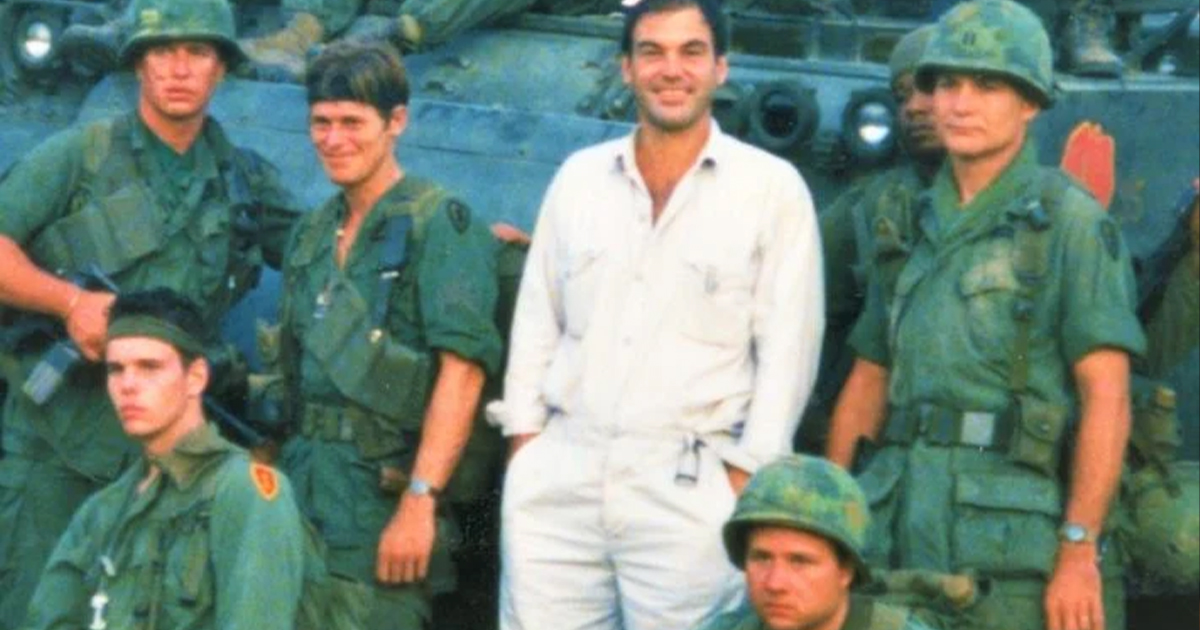
Unlike a lot of other filmmakers dealing with the Vietnam war, Platoon writer-director Oliver Stone had firsthand experience, having served in the conflict as an infantryman. Platoon is largely based on Stone’s genuine experiences, with some incidents drawn directly from real life. This includes the scene when Charlie Sheen’s Chris saves a Vietnamese girl from being assaulted, which Stone once did himself during the war.
The actors wrote their own messages on their helmets
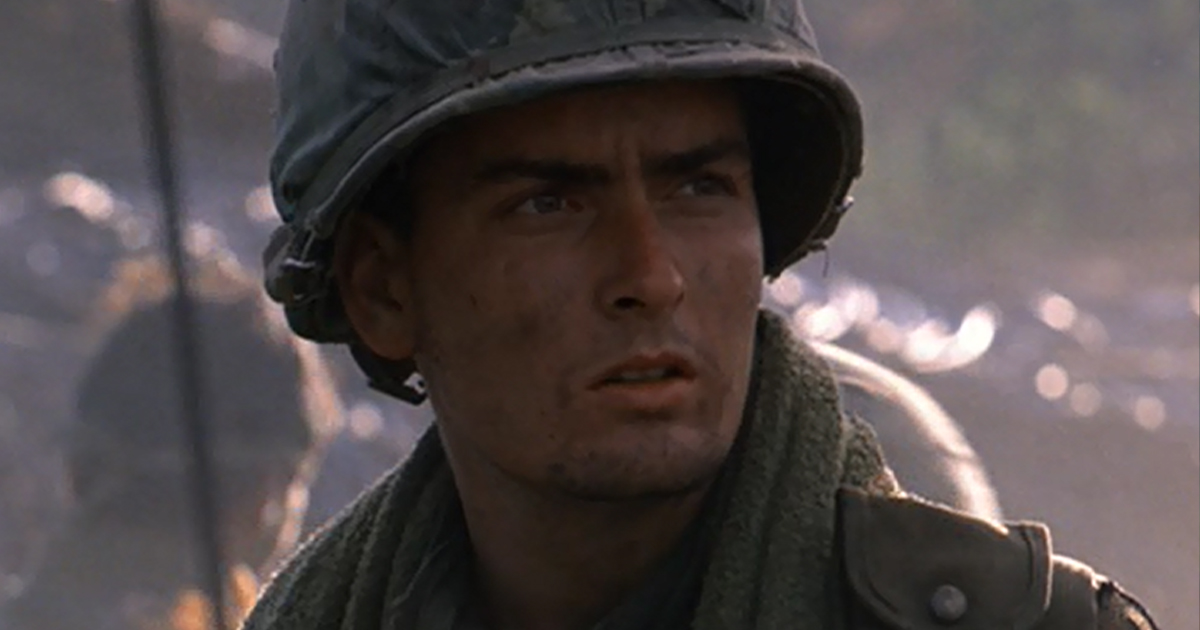
Movies about the Vietnam War have often highlighted the practice of soldiers writing personalised messages on their helmets. This was done in Platoon, and for a more authentic personal touch, the actors wrote messages they came up with themselves. For instance, Charlie Sheen wrote, ‘When I die, bury me upside-down so the world can kiss my a**.’
Oliver Stone first tried to get the film made in 1969
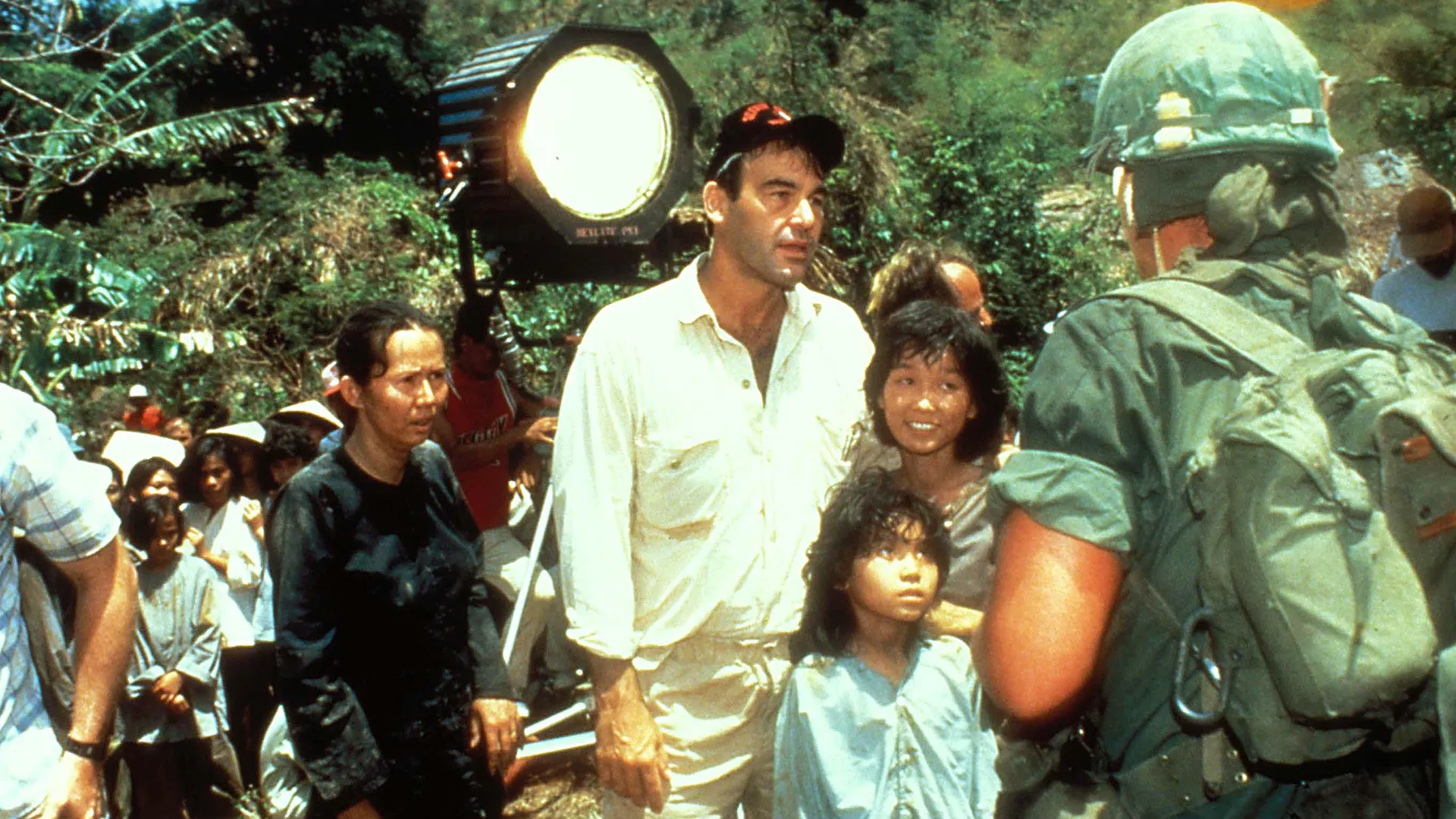
It’s not unusual for films to take a long time to get made, but Platoon took a lot longer than some. Oliver Stone wrote the first draft of the script – originally entitled Break – all the way back in 1969, shortly after his tour of duty in Vietnam ended.
Rock legend Jim Morrison was first choice for the lead
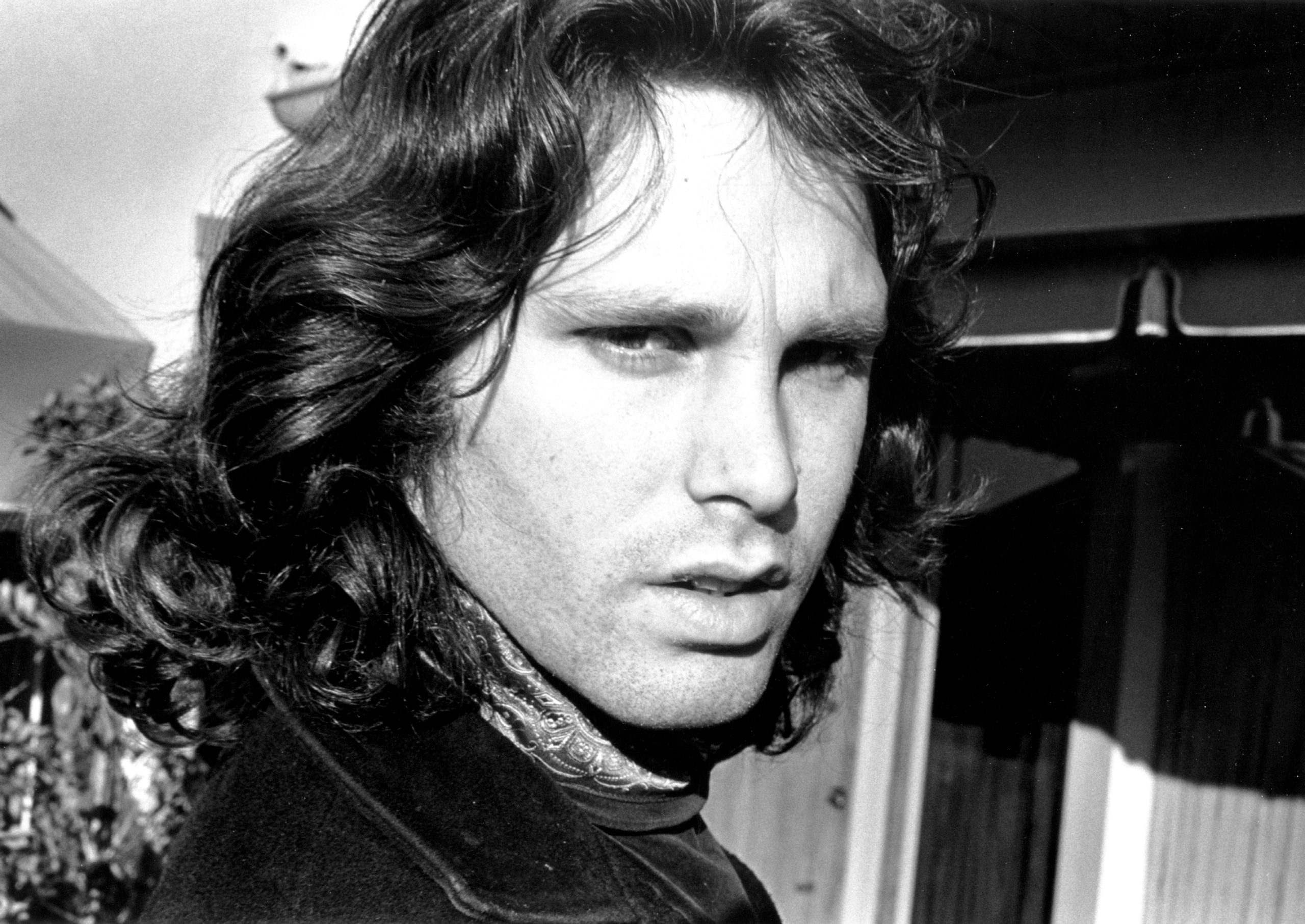
After first writing the Platoon script, the ambitious Oliver Stone sent a copy to Jim Morrison, frontman of The Doors, hoping her would be interested in playing the lead role. Nothing came of this, but when Morrison died in July 1971, the copy of Stone’s script was later found in the musician’s Paris apartment.
The original script was a fantasy film that followed a dead soldier to the afterlife
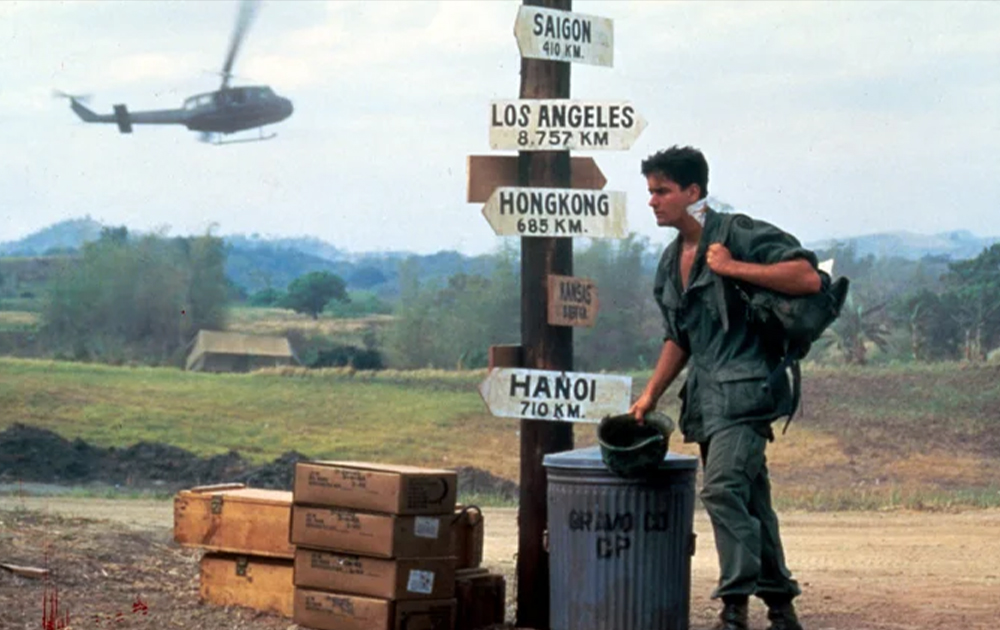
By Oliver Stone’s own admission, the early script for what became Platoon was very far removed from the film he ended up making. As Stone recalls, there was a fantasy element: “The character dies in Vietnam and goes to the Underworld… I couldn’t deal with Vietnam yet in a completely realistic way at that point.” He later rewrote it into something more realistic.
The film was almost made in the 70s by Sidney Lumet and Al Pacino

Stone’s more grounded second draft of the script found its way to Sidney Lumet, who had directed Al Pacino in the 70s classics Serpico and Dog Day Afternoon. Initially Lumet planned to work with Pacino again on Platoon, but there were still reservations about the script, and the success of Vietnam movies Apocalypse Now and The Deer Hunter left them feeling “our moment had passed.”
Keanu Reeves, Mickey Rourke and Nick Nolte all turned down leading roles
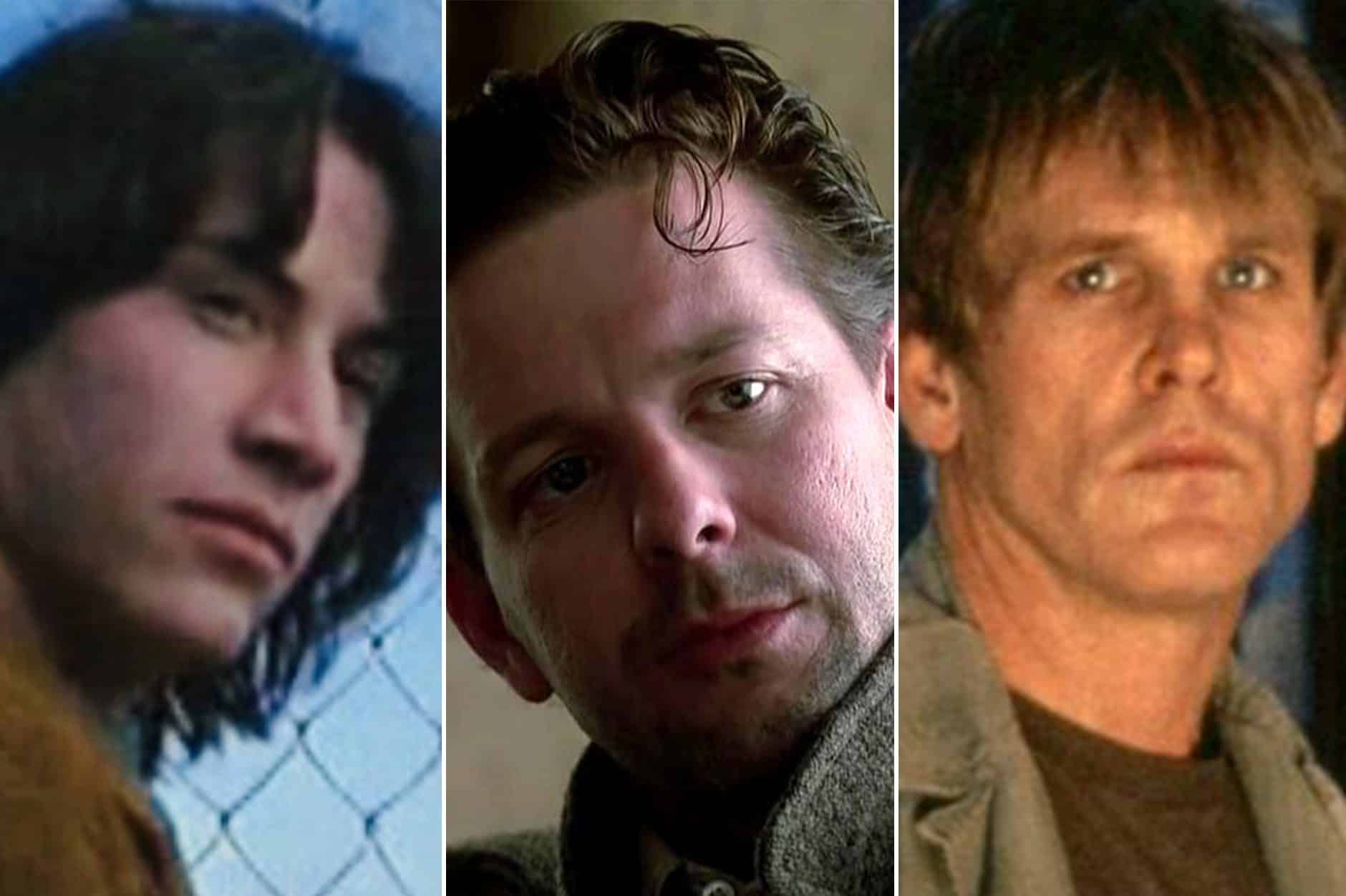
Once things got moving on Platoon, Oliver Stone and company met with plenty of notable actors. Originally he wanted Mickey Rourke for the role of Barnes, and Nick Nolte for Elias, but both declined. Meanwhile, an early contender for the role of Chris was Keanu Reeves, but he was uncomfortable with the violence (ironic, considering Reeves is now best known as John Wick).
Oliver Stone was so highly strung, at one point he accused the editor of losing footage he hadn’t actually shot yet
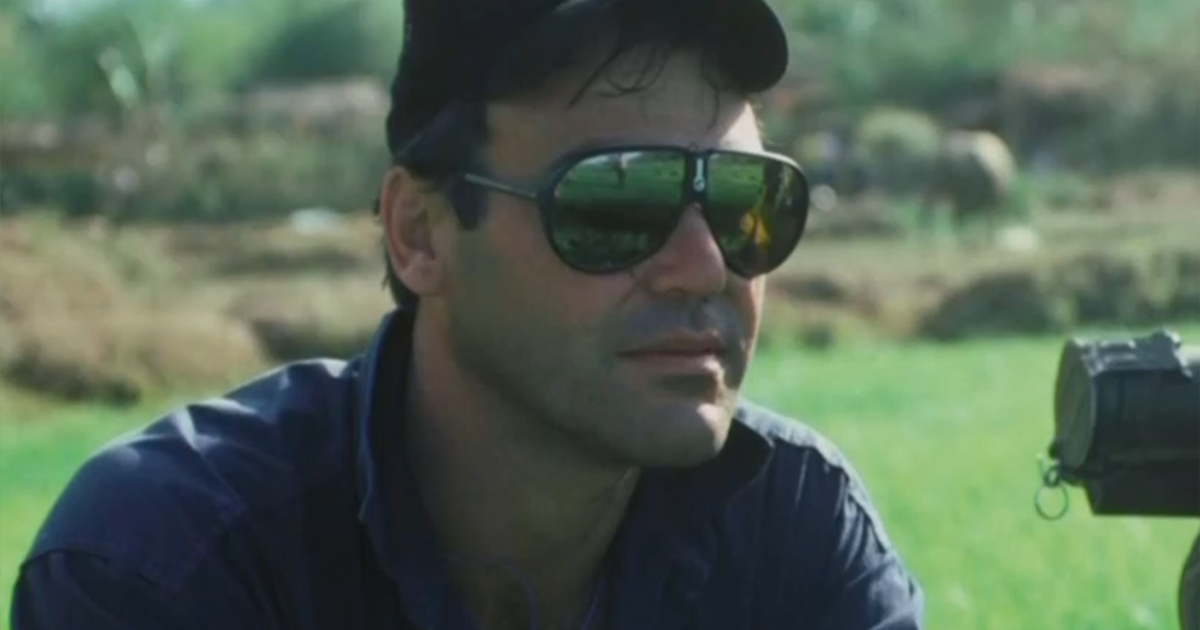
Oliver Stone took didn’t get much rest and grew highly strung during production, which had some impact on his state of mind. One day the filmmaker couldn’t find the footage from a particular scene, and angrily accused editor Claire Simpson of losing it. Simpson then had to explain to Stone that he couldn’t find that footage because the scene in question hadn’t been shot yet.
Political unrest in the Philippines almost shut down production
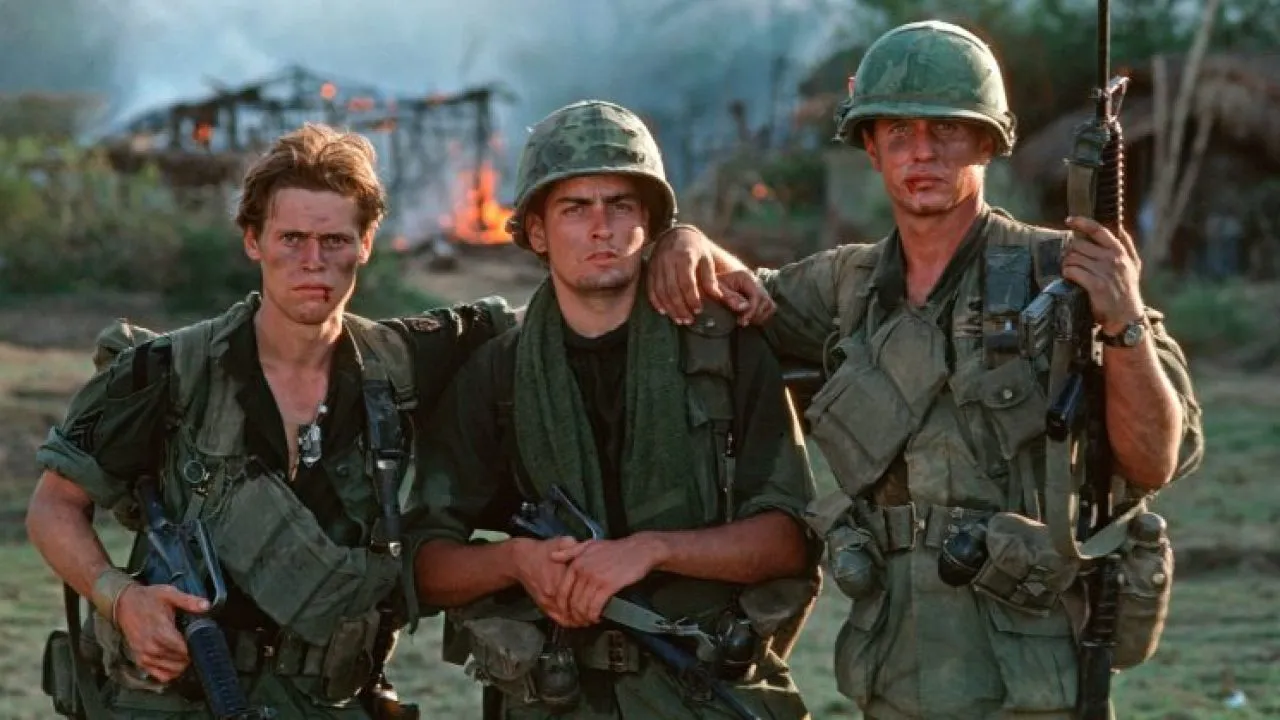
Like many Hollywood movies set in Vietnam, Platoon was shot in the jungles of the Philippines. However, production was almost derailed when a revolution broke out in the Philippines immediately before the film was due to start filming. Ultimately this only wound up delaying the shoot by a week; Stone says the filmmakers merely had to “make new deals with the new military.”
Keith David saved Charlie Sheen’s life when a helicopter shot went wrong
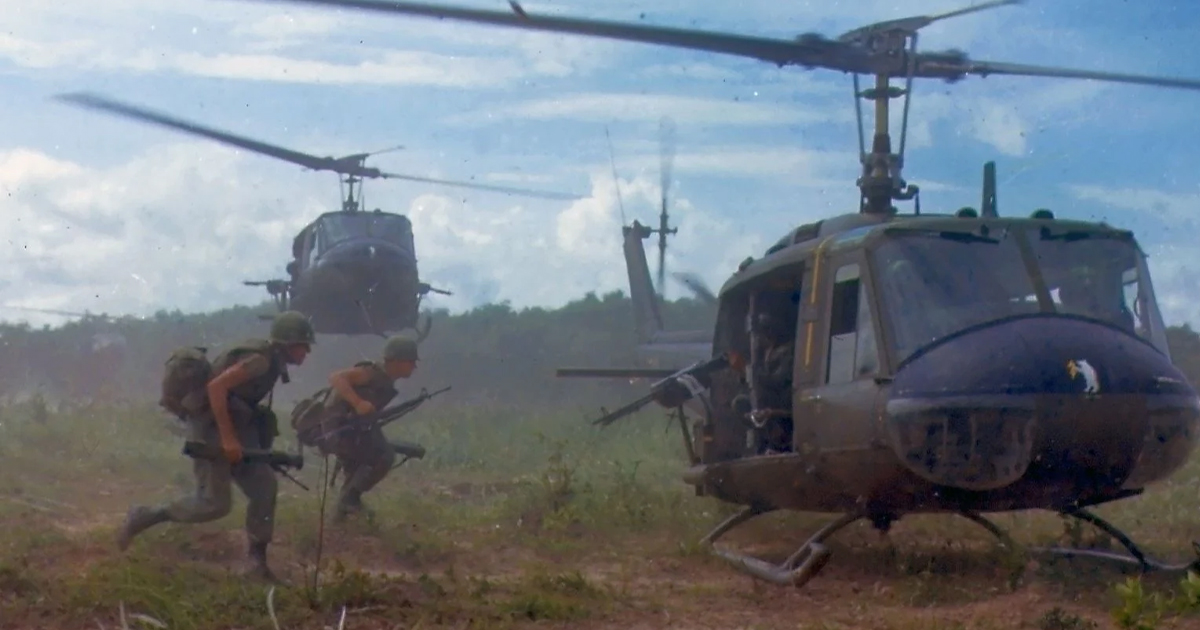
One day, the cast were filming in an open-door gunship high off the ground, when the vehicle unexpectedly banked hard to one side. Charlie Sheen lost balance and fell toward the open door – but his co-star Keith David caught him. As Sheen would almost certainly have fallen out of the helicopter otherwise, the actor has since praised David for saving his life.
The actors actually smoked illicit substances before shooting the drugs scene
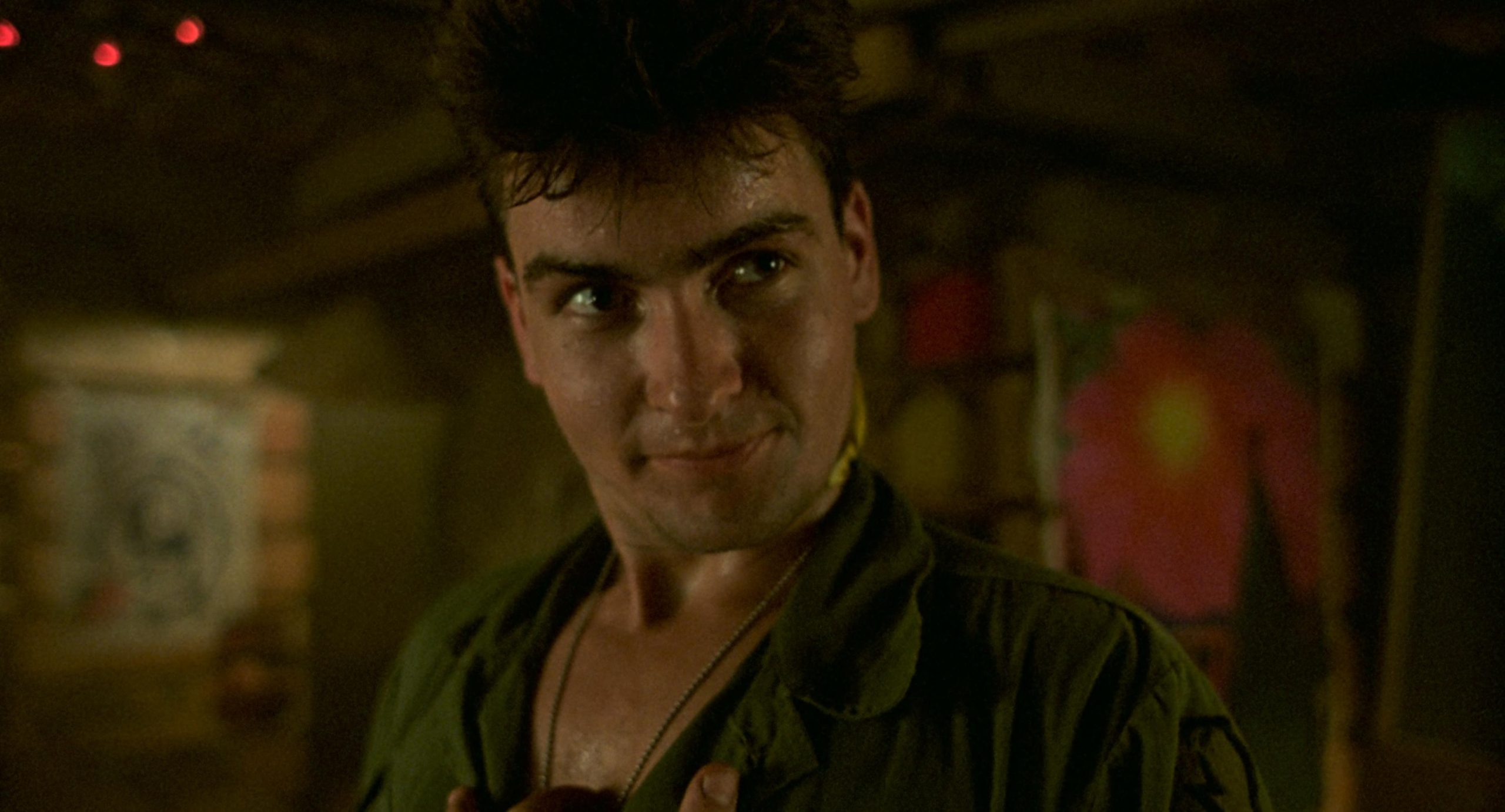
One sequence sees several soldiers smoking a certain illicit substance, and some of the actors decided to go ‘method’ by partaking for real. Things didn’t quite go to plan, however, as they smoked while the lights and cameras were being set up. This took longer than expected, so the actors had come down from their high and felt awful once Oliver Stone called ‘action.’
The film’s most iconic image was based on a real photograph taken in Vietnam
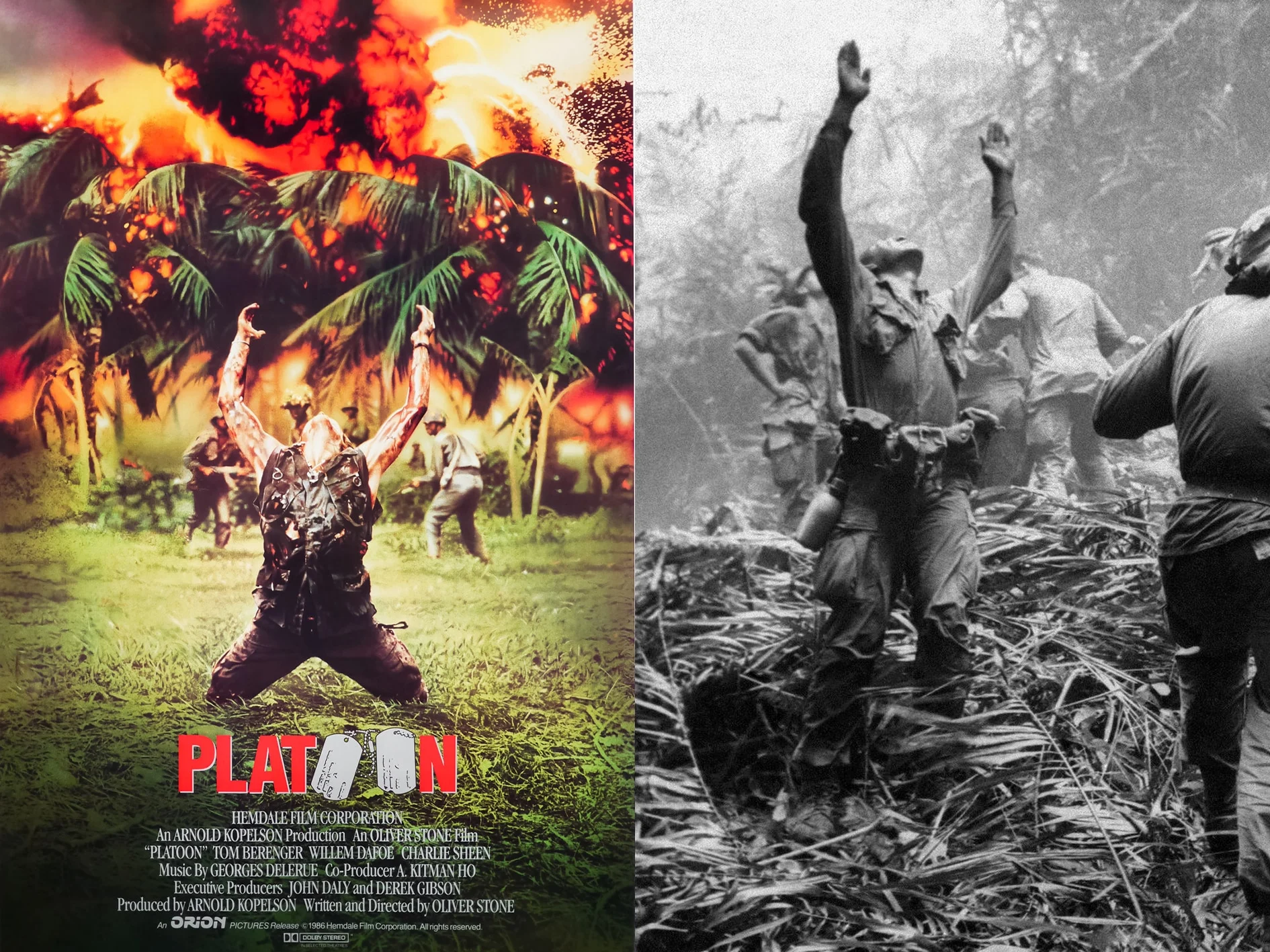
Platoon’s signature image (used on the famous poster) shows a desperate soldier on his knees with his arms stretched upright. While this image may be synonymous with the film today, it was closely modelled on a real photo from the Vietnam war, taken by war photographer Art Greenspon in 1968. The photograph has been widely hailed as one of the defining images of the infamous conflict.
Stone used imported earth from Vietnam for greater authenticity
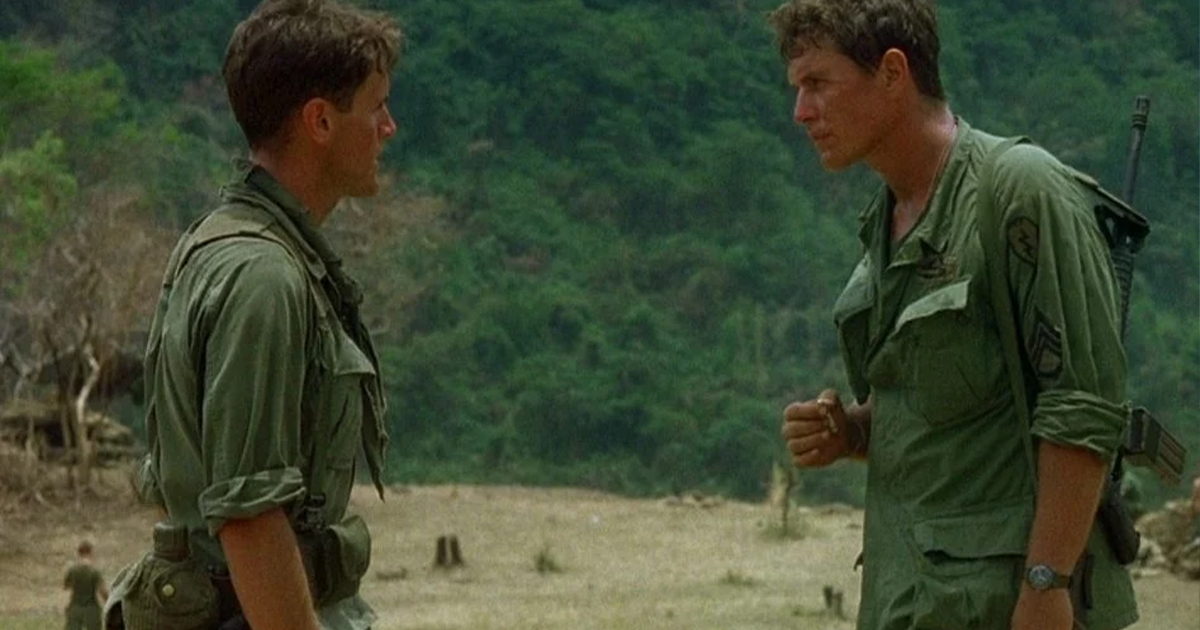
Stone was anxious to make Platoon as true to life as he could, and the level of attention to detail went perhaps a bit further than you might have expected, however. Stone felt the dirt in the Philippine jungle just didn’t match his memory of Vietnam, so had soil that more closely resembled that of the Vietnamese jungle was especially imported for use on set.
Oliver Stone was deliberately rough on the cast so they’d understand the true misery of war
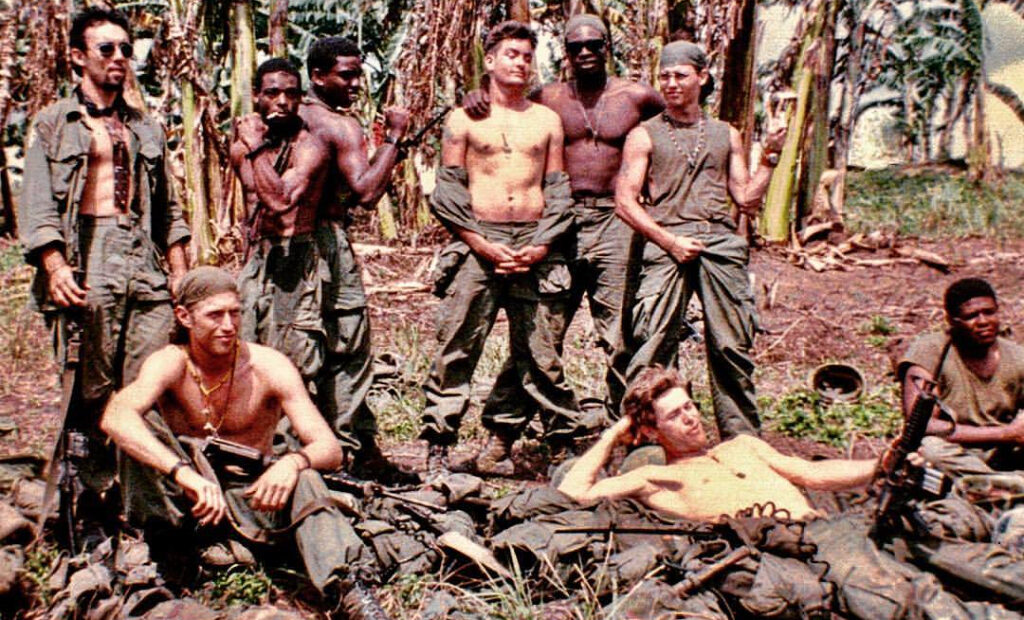
Prior to filming, Stone ordered the cast be subjected to a grueling two weeks of intensive training. This wasn’t to get them to bond or physically fit for the movie, but to deprive them of sleep and make them so exhausted that they genuinely struggled to endure the shoot. This was to recreate the exhaustion soldiers genuinely felt in Vietnam.
The cast all hated Stone during production
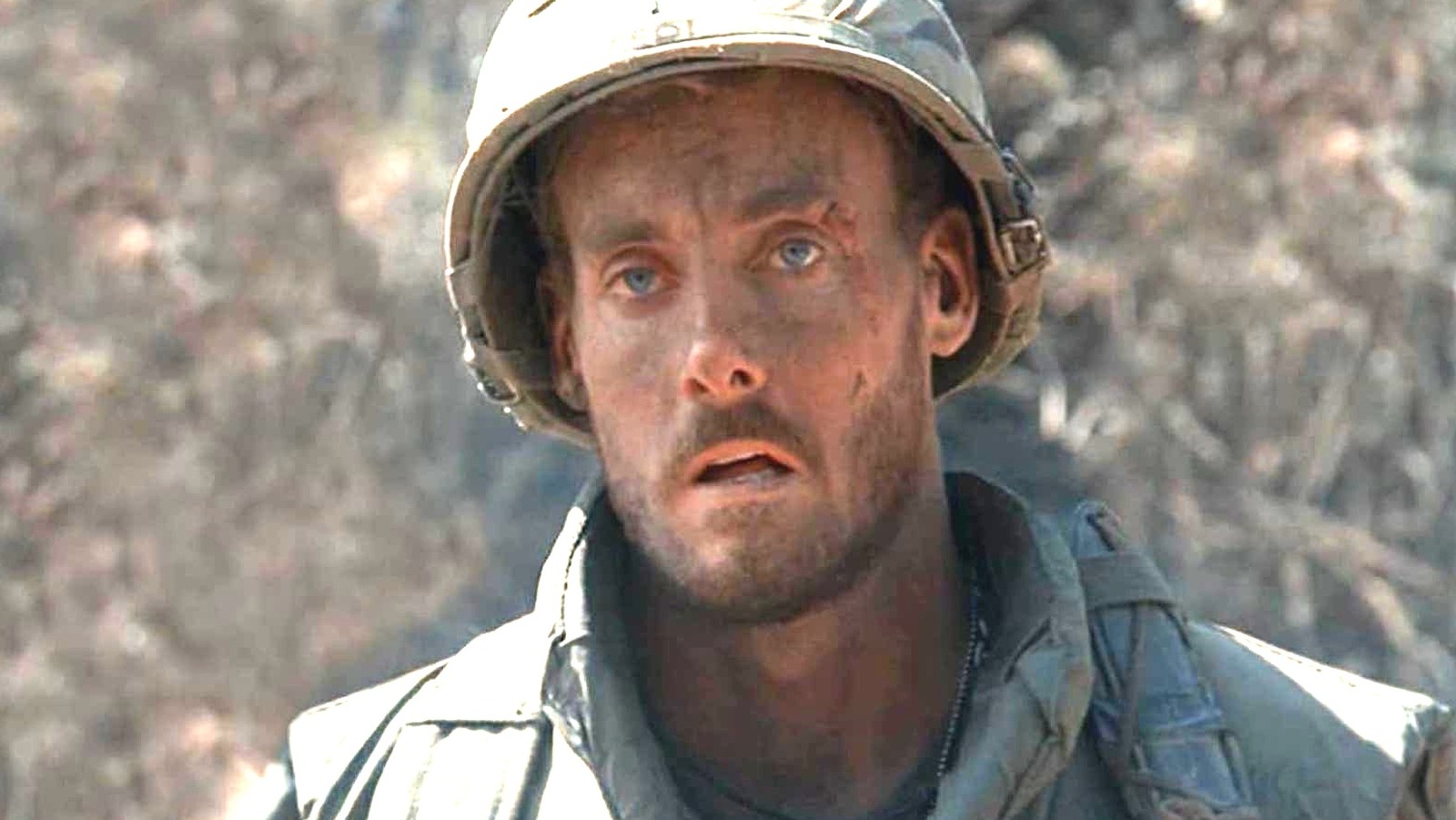
Actor John C. McGinley has been quoted as saying that the whole cast hated Stone all the way through the shoot of the film, because of how hard he was on them. However, the cast also recognized that this was Stone’s intention, as he wanted to make them feel something close to the true misery of war.
Willem Dafoe became ill drinking river water
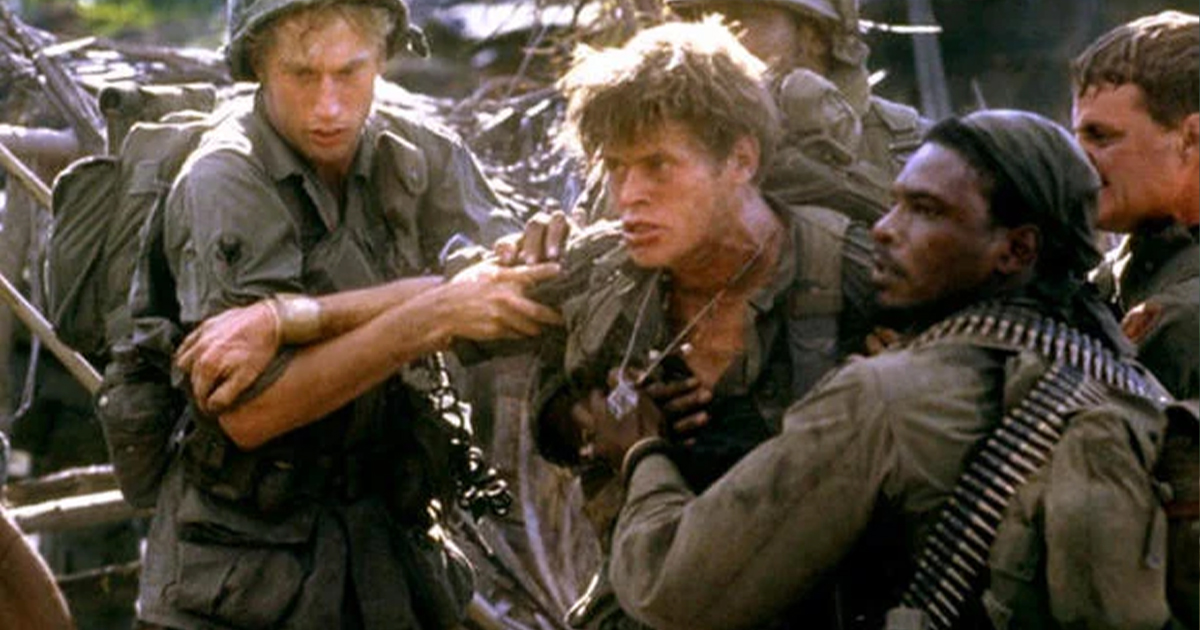
In one scene, a character is warned that drinking water from the river might give them malaria. Unfortunately, actor Willem Dafoe chose to disregard this advice whilst shooting on location in the Philippines, at one point drinking direct from a river between takes. Thankfully he didn’t contract malaria, but the water was still toxic enough to leave Dafoe terribly sick for a day or so.
Tom Berenger’s make-up took three hours every day
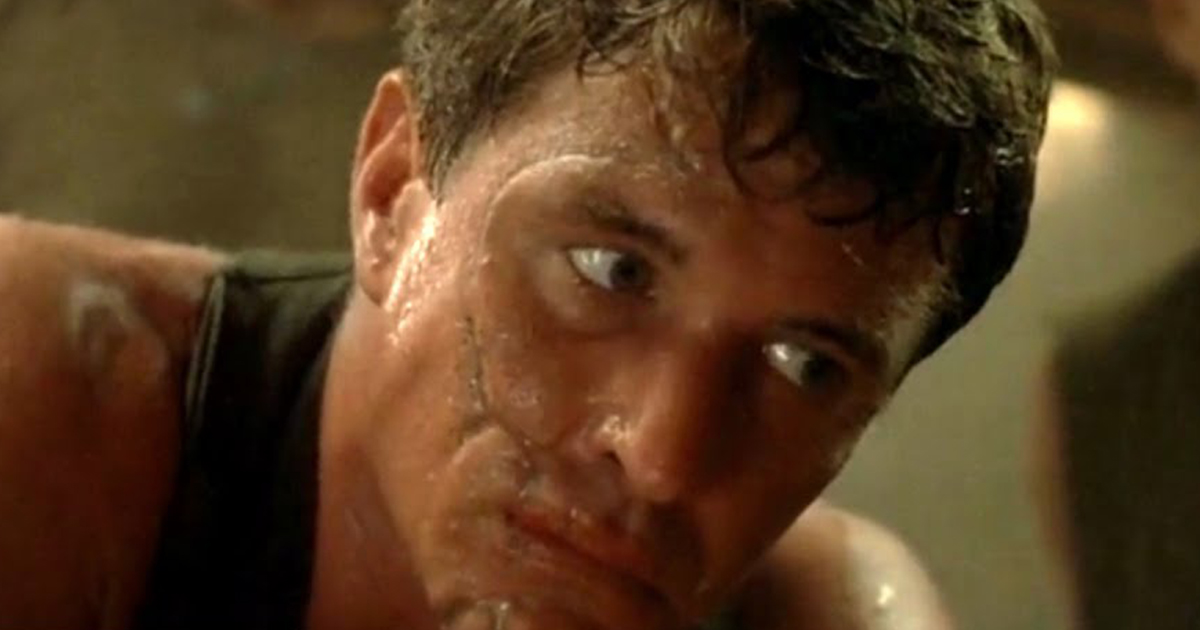
Tom Berenger’s Sergeant Barnes is made all the more distinctive and imposing by his severe facial scars. As Platoon was striving for authenticity, efforts were made to ensure Barnes’ scars looked as realistic as possible. As a result, Berenger had to spend close to three hours in make-up every day of the shoot.
Oliver Stone suffered from PTSD during filming
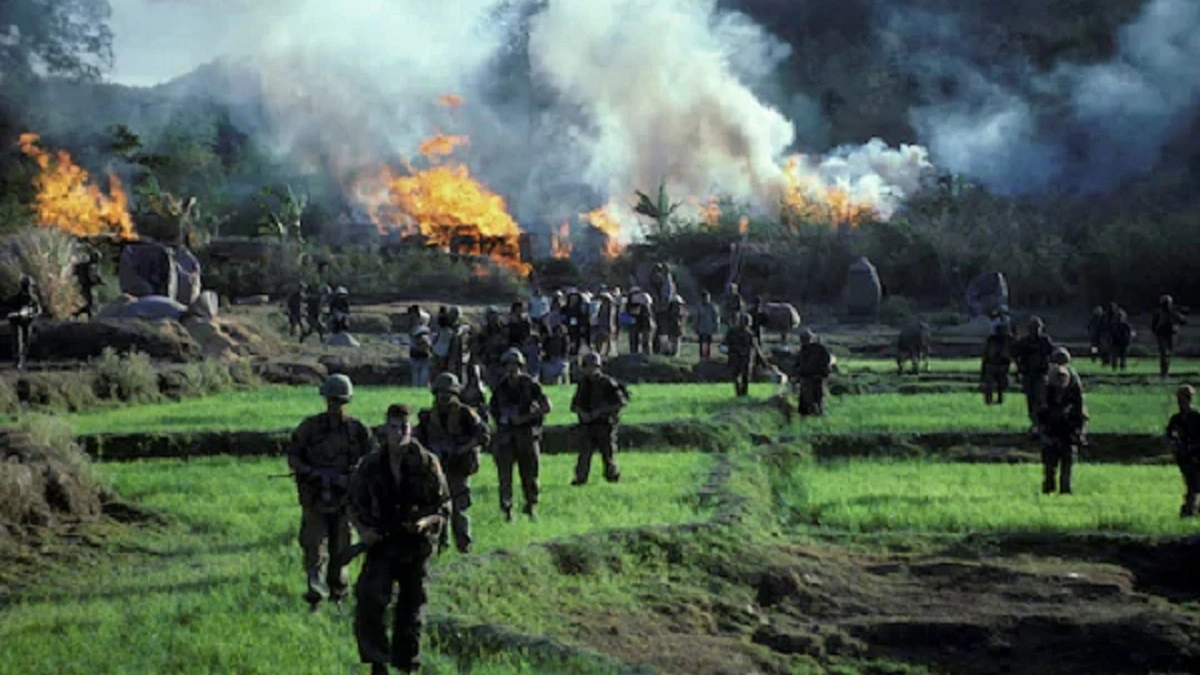
Recreating the war on film brought Oliver Stone’s experiences back, and the director had an attack of post-traumatic stress disorder. This was witnessed by the film’s military advisor, Dale Dye, who was also a veteran of the war. The two men shared their Vietnam experiences and, with Dye’s help, shooting was able to continue.
Johnny Depp nearly vomited from the stress of filming
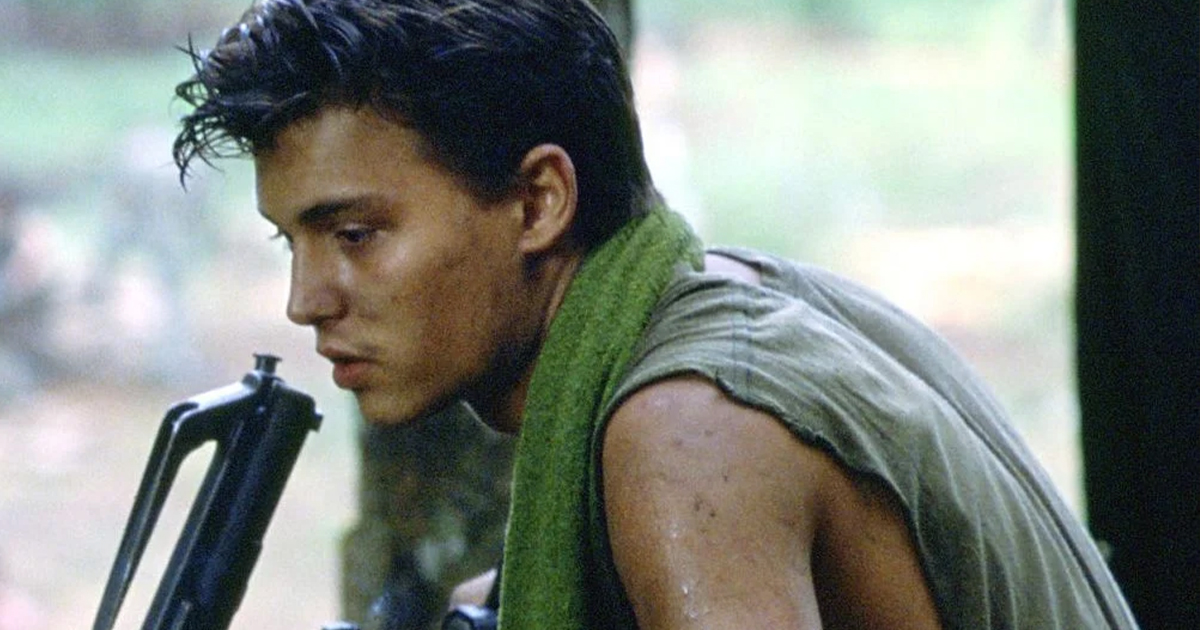
Platoon was only Johnny Depp’s third movie, and it proved to be extremely stressful for the actor at times. During one particularly rough sequence, director Oliver Stone’s aggressive manner almost reduced Depp to vomiting. Despite this, the unrelenting Stone still demanded Depp do a second take immediately afterwards.
Depp had to be talked out of peeing on Stone as vengeance
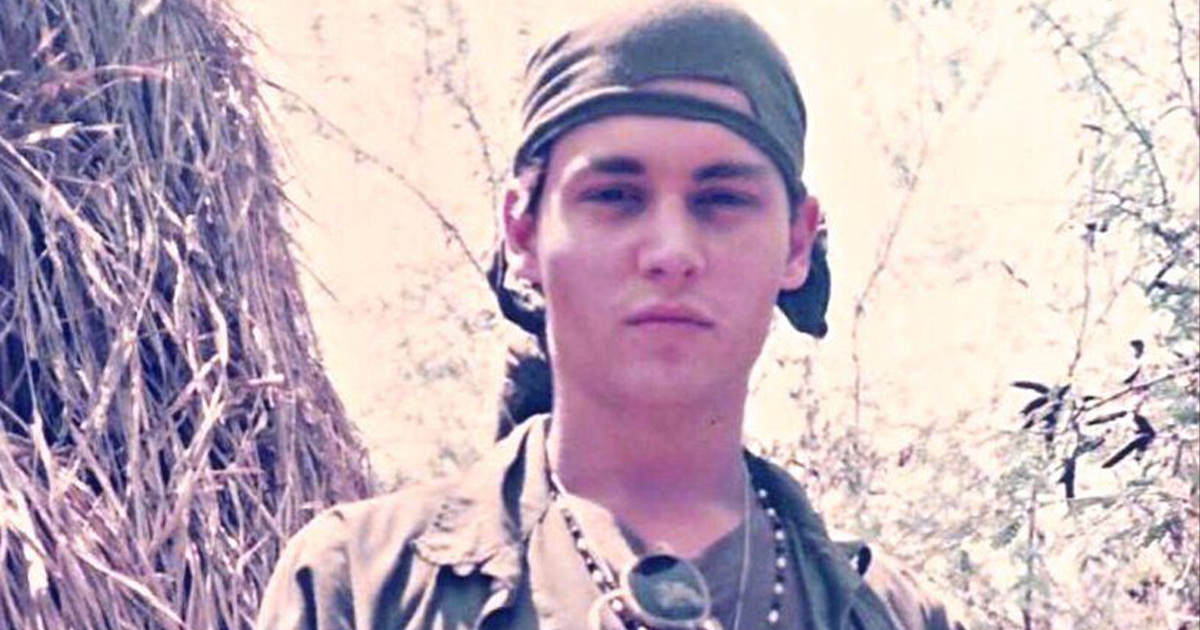
It came to light years later that Depp planned to take revenge on Stone for the director’s rough treatment. The actor planned to do this by urinating on him from a hotel balcony window. In the end, an assistant director talked him out of it, which was probably for the best.
Forest Whitaker genuinely tumbled shooting the opening scenes
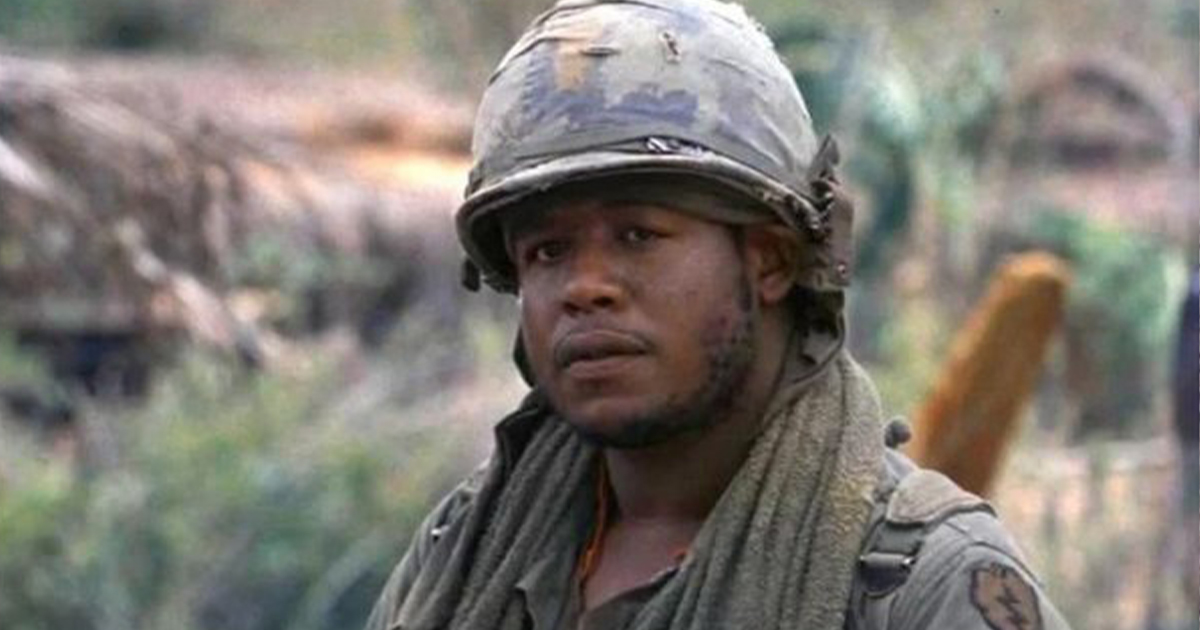
Another future big-name Hollywood actor who got one of his first major roles in Platoon was Forest Whitaker. When he is first seen in Platoon’s opening credits, he slips and falls down a hill, which the actor says was a genuine accident. Although this moment was not scripted and Whitaker hadn’t been directed to fall, Stone chose to keep it in the film.
The voice of the real ‘Good Morning, Vietnam’ DJ can be heard at one point

At one point in Platoon, the words “Good morning, Vietnam” can be heard over the radio. These are the words of Adrian Cronauer, the USAF radio DJ whose story and catchphrase was later immortalized on film. In 1987, one year after Platoon was released, Robin Williams took the lead role in comedy drama Good Morning, Vietnam.
Willem Dafoe and Tom Berenger were deliberately cast against type as hero and villain
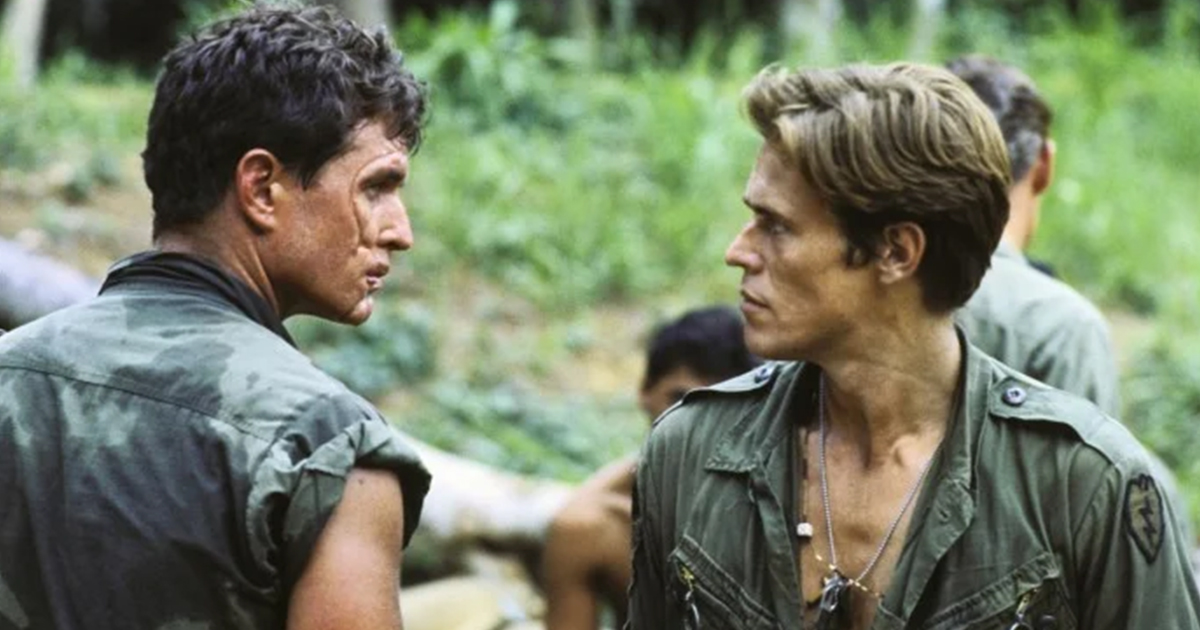
In casting Platoon, director Oliver Stone made a point of casting two of his principal actors – Willem Dafoe and Tom Berenger – completely against type. Because Berenger had mainly played sympathetic good guys, Stone gave him the role of the sadistic Sergeant Barnes, whilst Willem Dafoe was used to playing villain so was instead cast as the caring, compassionate Sergeant Elias.
Lieutenant Wolfe is used as a bad example of leadership in real military leadership classes
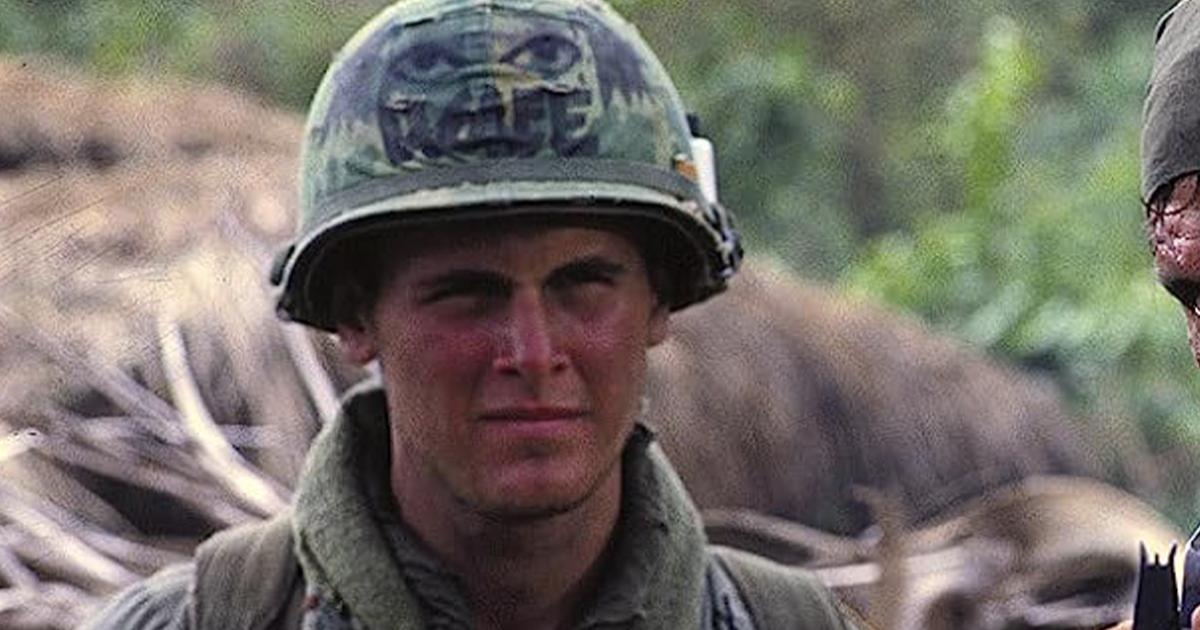
Lieutenant Wolfe, played in the film by Mark Moses, is one of the most interesting side-characters in Platoon. Wolfe’s inexperience and bad decision-making skills are so obvious in the film that the US military has allegedly used videos of the character during officer training. These videos are designed to illustrate the fact that Wolfe does exactly what a military leader shouldn’t do.
It was one of three major Vietnam films to be released within nine months
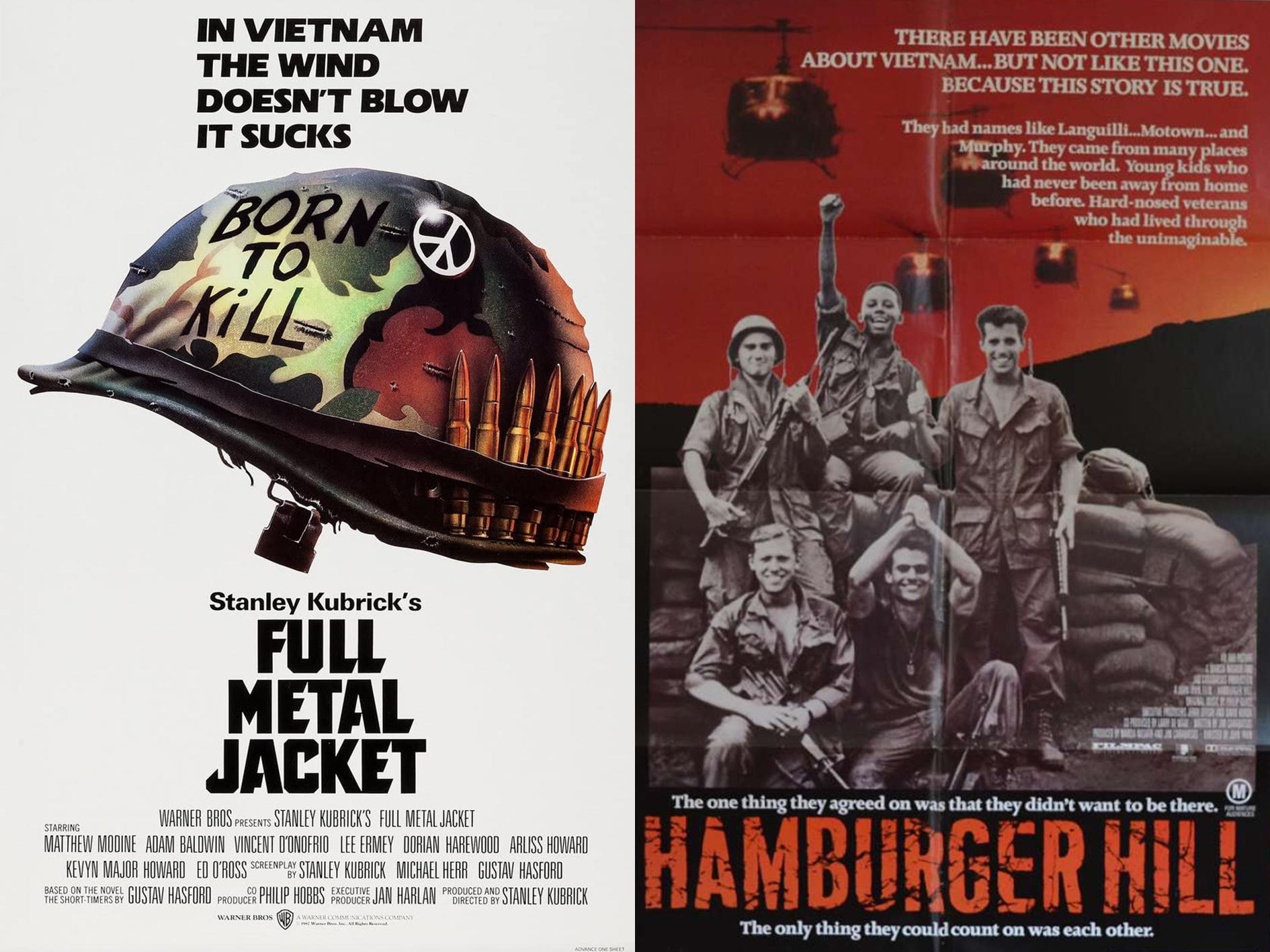
Such was the popularity of Vietnam movies in the 80s, Platoon – which opened in December 1986 – was just one of three released in a nine-month period. It was followed in June 1987 by Full Metal Jacket, which was in turn followed by Hamburger Hill in August. Though acclaimed, Hamburger Hill was the only of the three not to land any Oscar nominations.
Ben Stiller was rejected from the movie because Oliver Stone thought he was “too cute”
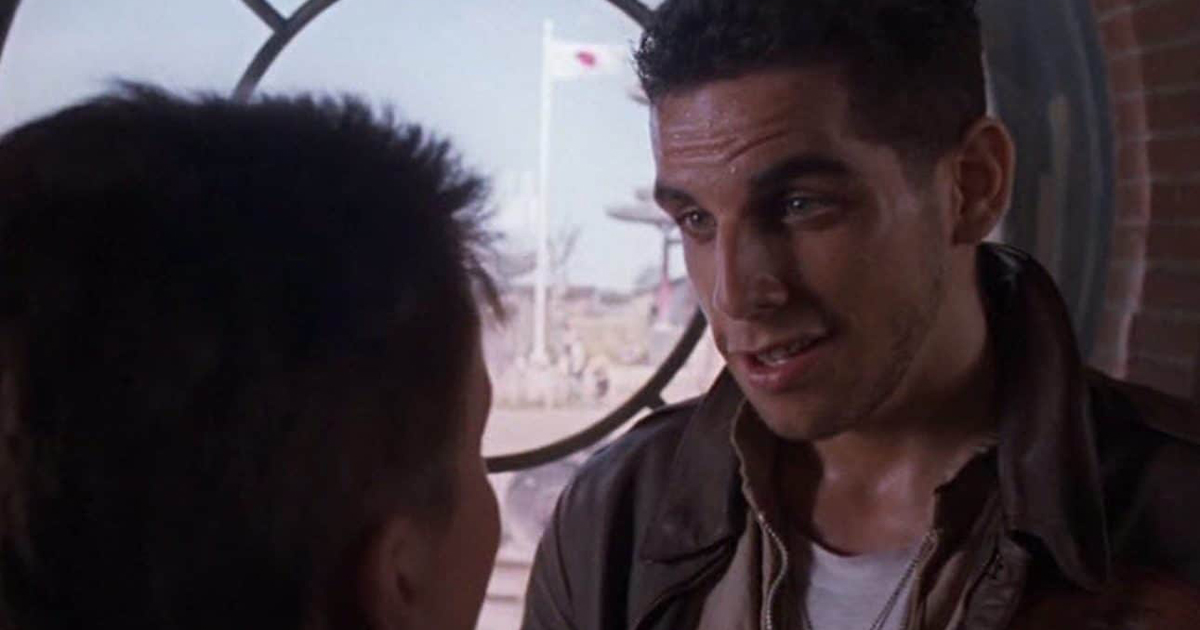
Ben Stiller landed an audition for Platoon, but before he even spoke a word Oliver Stone dismissed him. Stone reportedly told Stiller that he looked “too cute” to appear in the movie, which no doubt annoyed Stiller, who would later parody movies like Platoon in Tropic Thunder, as well as mocking Stone directly with a sketch called Oliver Stoneland on The Ben Stiller Show.
The moment where Chris sees a struggling buffalo was the hardest scene to film
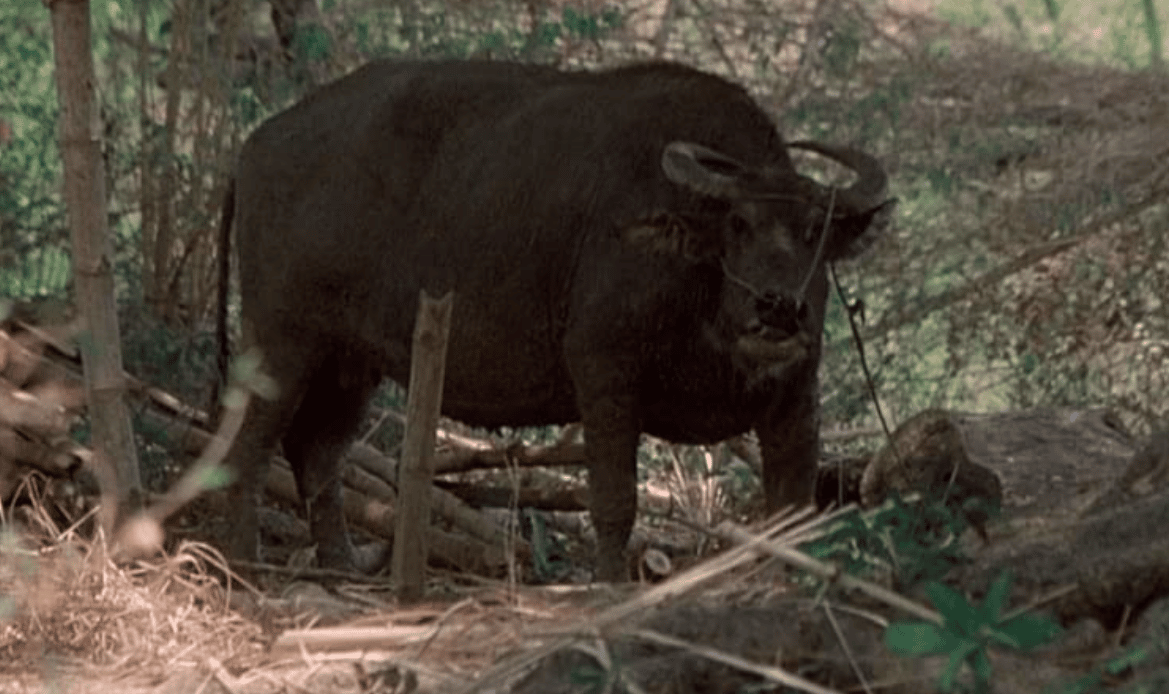
The old showbiz rule “never work with children or animals” held true on Platoon, as the scene where Chris encounters a huge buffalo was almost impossible to get right. The animal kept moving and trying to shake the vegetation out of its horns. Eventually one of the animal’s legs was tethered to a post to keep it still long enough for the crew to capture.
We only see roughly 12 of Chris’ 100 days in Vietnam
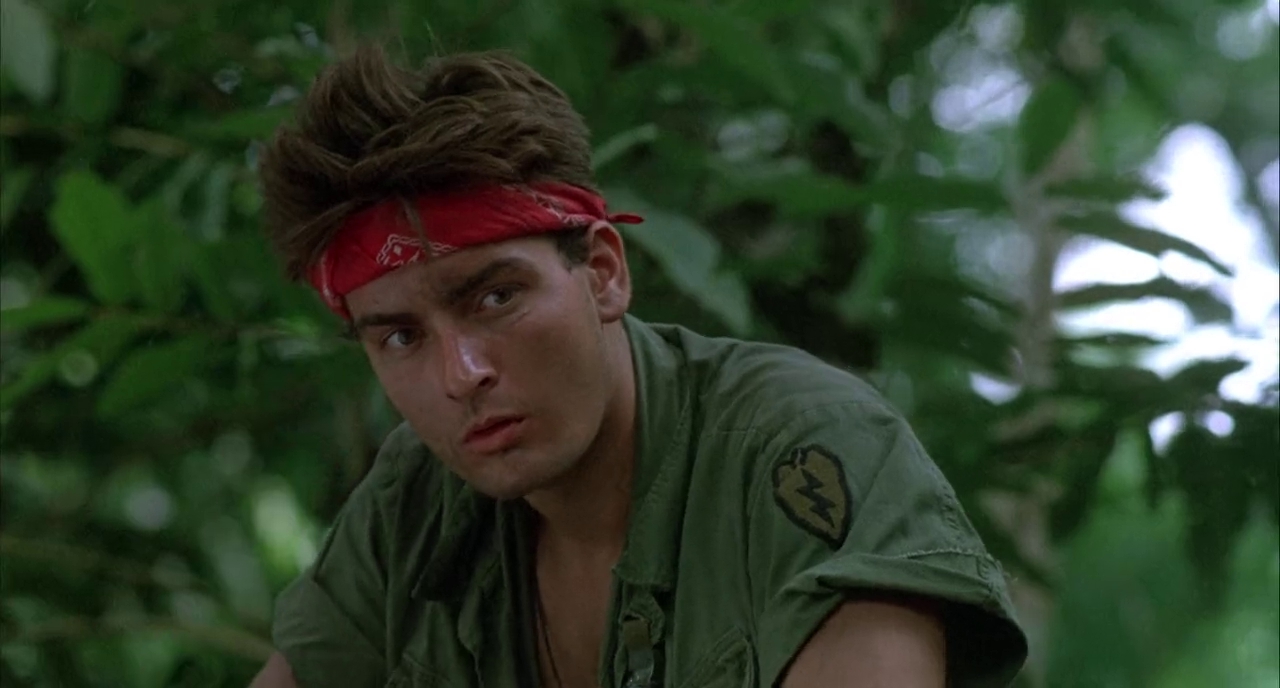
Watching Platoon, it feels like we have watched the entire Vietnam experience of Charlie Sheen’s Chris. However, we know from context clues in the movie that Taylor spends around 100 days in Vietnam before being airlifted out. We know that Taylor arrives in September of 1967, and leaves in January 1968, and we see around three weeks of his life in that timeframe.
The film is the first in a Vietnam trilogy by Oliver Stone
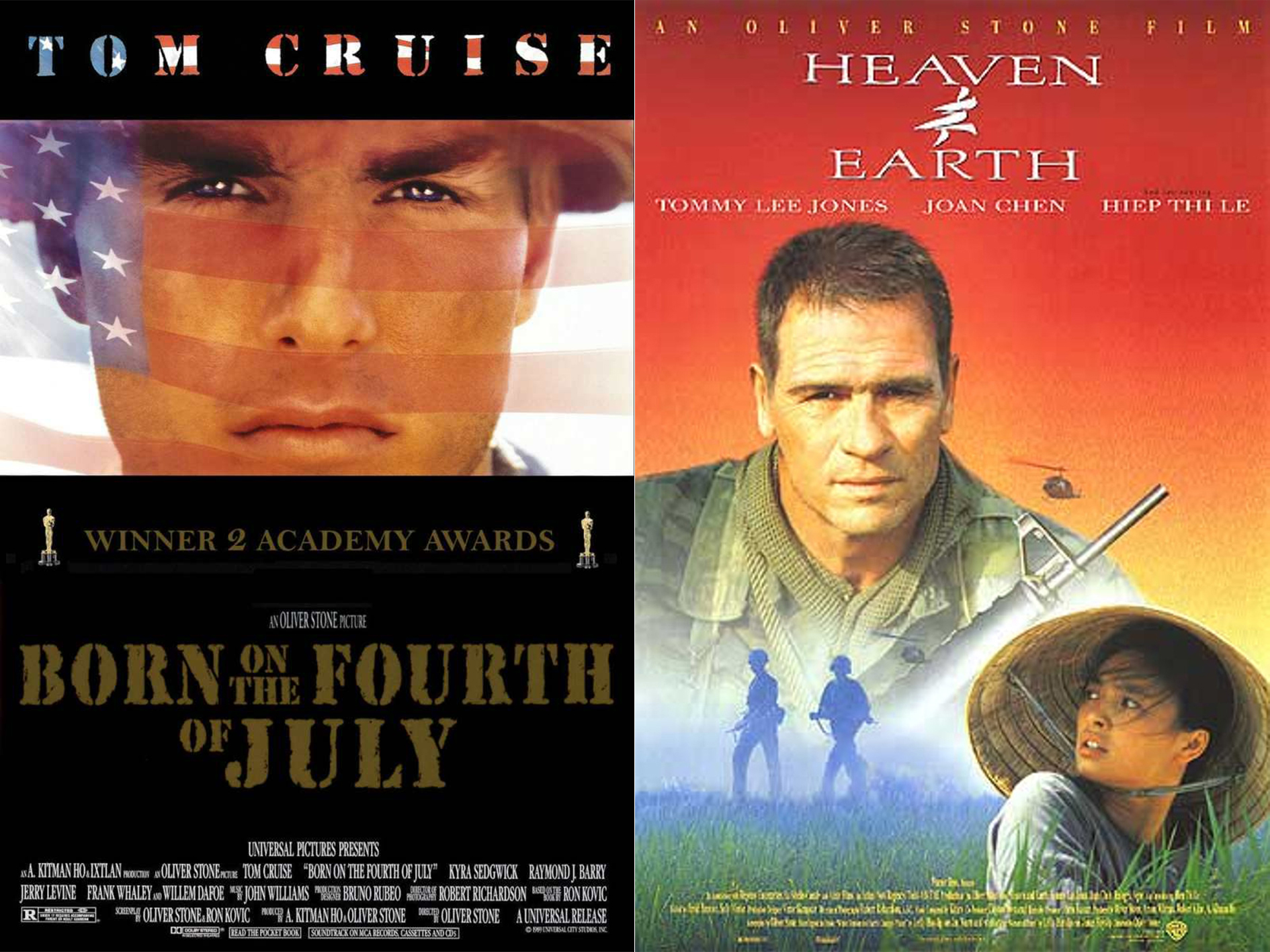
As well as being one of three Vietnam movies released that year, Platoon was the first of three movies director Oliver Stone made about the conflict. The second was 1989’s Born of the Fourth of July starring Tom Cruise, another huge hit which earned Stone a second Best Director Oscar. The third and final was 1993’s less well-received Heaven & Earth, starring Tommy Lee Jones.
The film could have saved Dino De Laurentiis’ studio
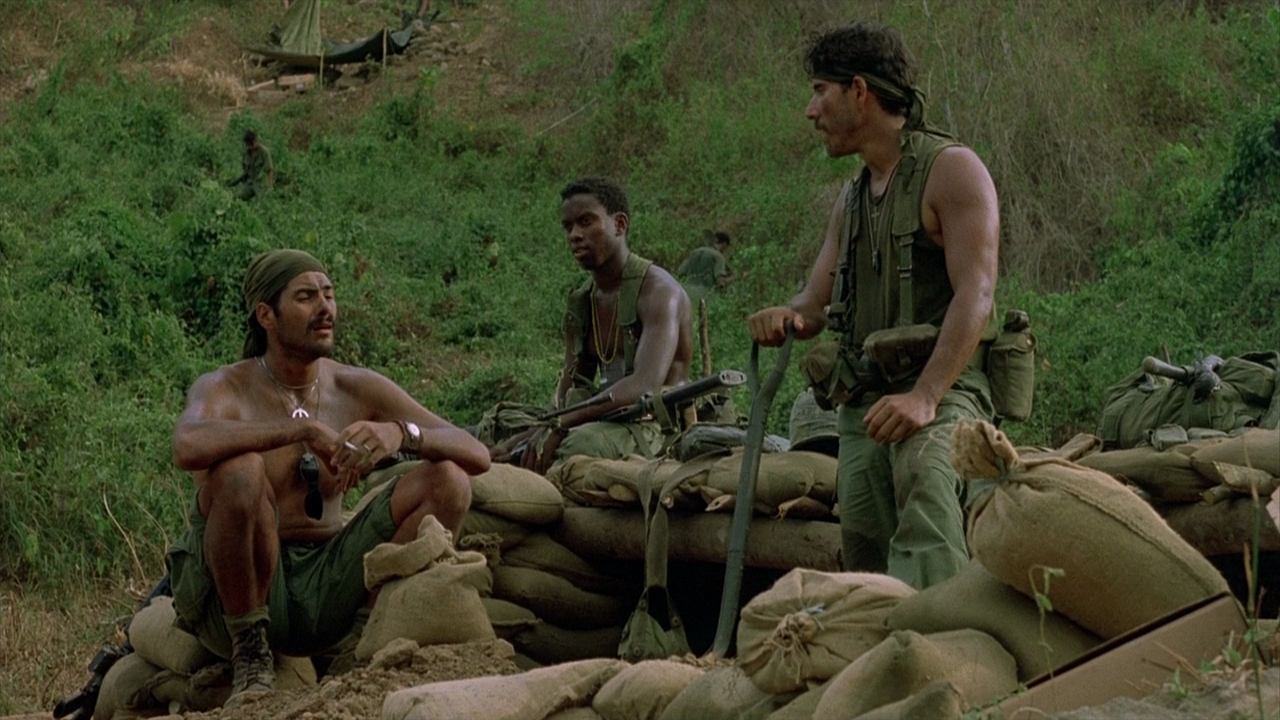
Before directing Platoon, Oliver Stone worked closely with producer Dino De Laurentiis, who initially agreed to finance Platoon. Unfortunately, De Laurentiis’ production company was struggling after a string of flops, so the producer withdrew backing, forcing Stone to find funding elsewhere. De Laurentiis must have been kicking himself for backing out, as Platoon ultimately made $138 million on a budget of just $6 million.
The whole movie was shot in order
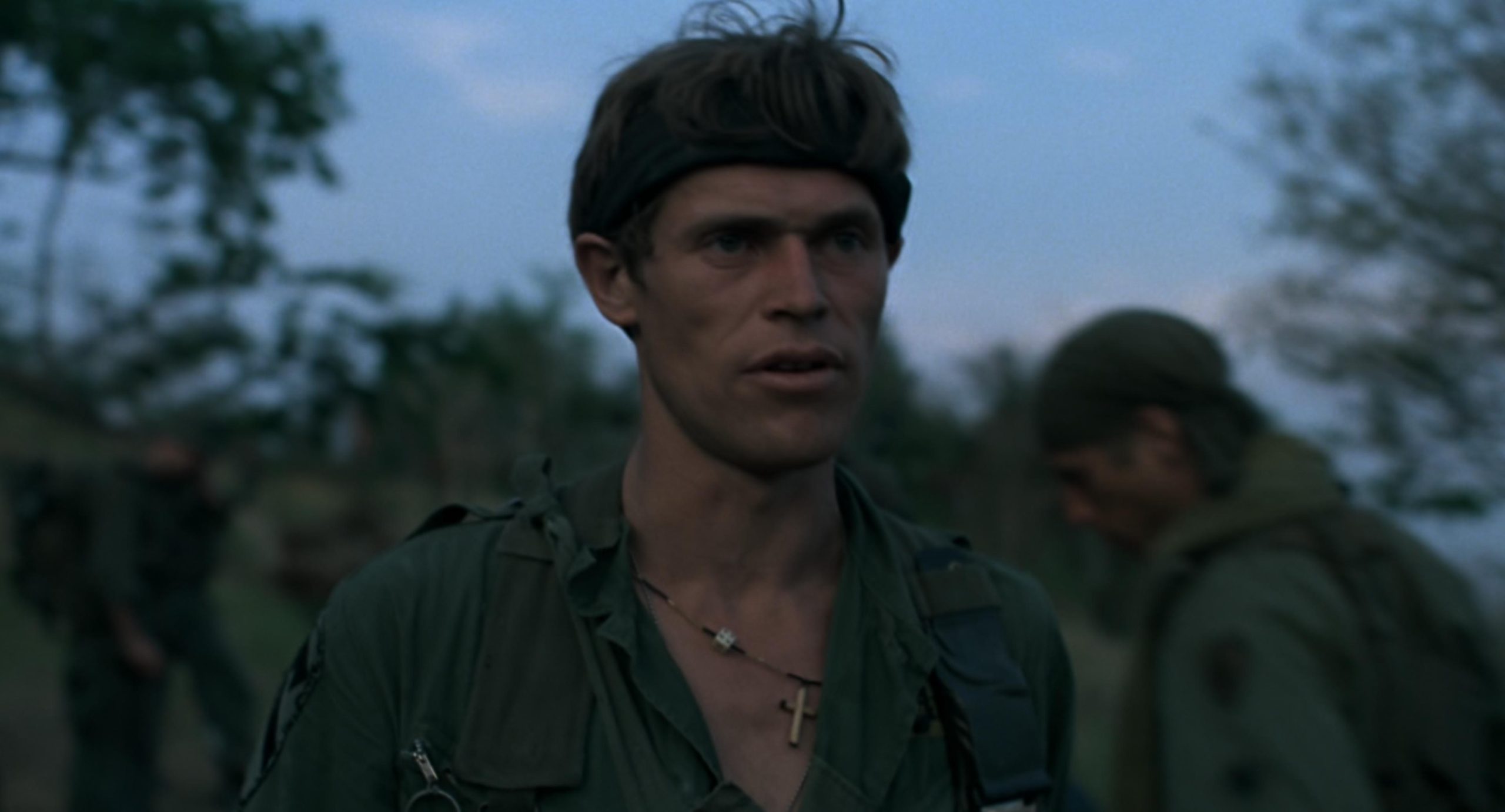
Unlike many movies, Platoon’s scenes were shot in the order they play out in the final film. Stone chose to do this because it meant that as each character died in Vietnam, the actor could leave the shoot and go home. For Charlie Sheen, this meant his shooting environment got steadily lonelier, bringing to life the emotions that his character would have been feeling.
Kevin Dillon and Charlie Sheen paid for surgery for the actor who played the disabled villager
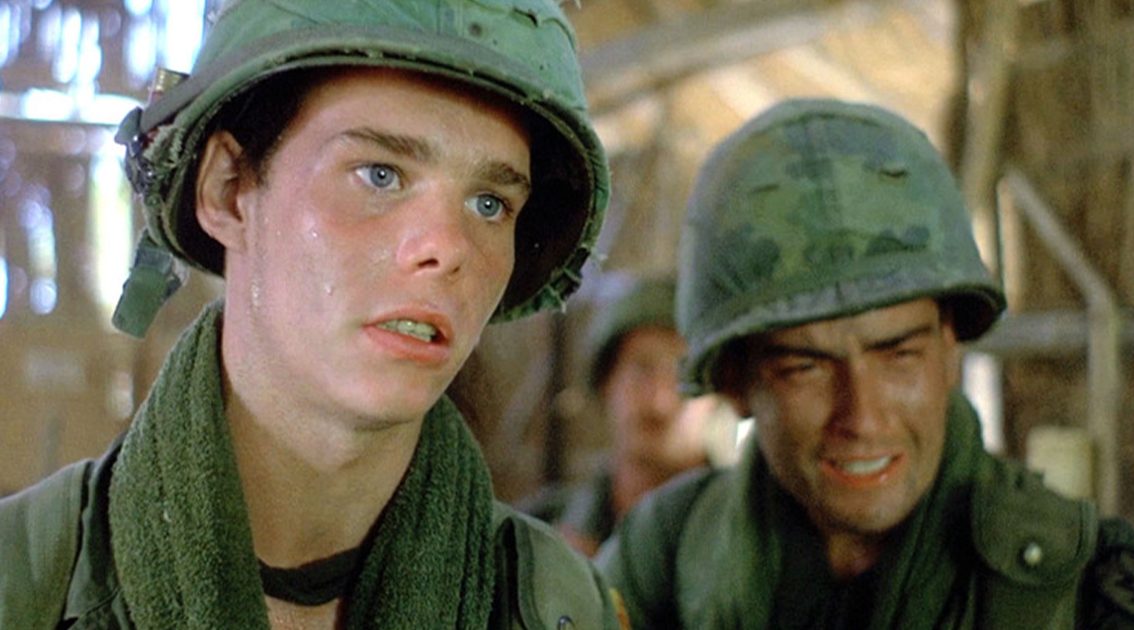
One scene in the movie features a blind Vietnamese boy. The young extra who was chosen to play him really had limited vision due to cataracts, and unfortunately the boy’s mother could not afford surgery to fix the child’s eyes. Charlie Sheen and Kevin Dillon banded together to pay for the child’s surgery on the mother’s behalf, out of their own pockets.
It was a huge hit at the box office and a big winner at the Oscars
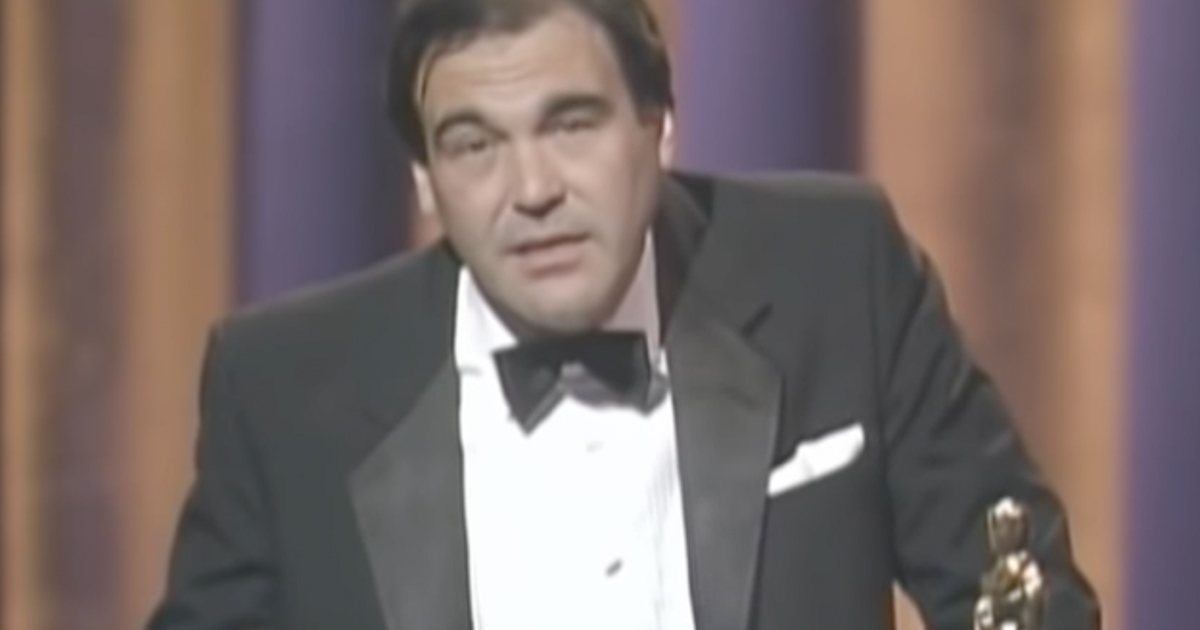
Platoon garnered eight nominations at the 59th Academy Awards on March 30th, 1987, and wound up taking home four of the biggest Oscars of the night: Best Picture, Best Director for Stone, Best Editing and Best Sound. Unfortunately for Willem Dafoe and Tom Berenger, they both lost out on the Best Supporting Actor award to Michael Caine in Hannah and Her Sisters.
Oliver Stone is to date the last Oscar-winning director to have served in a war
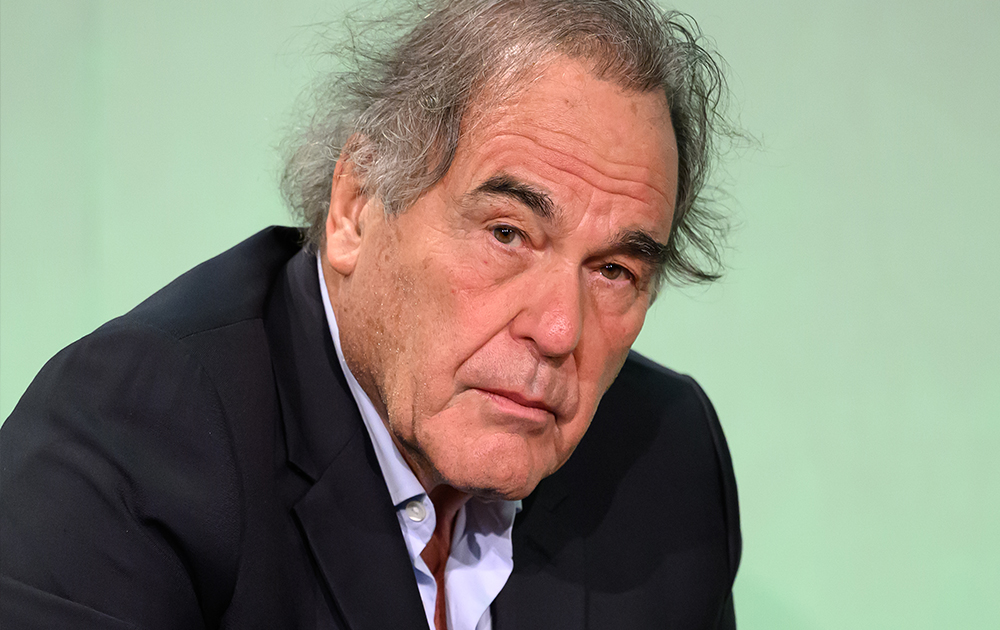
While more directors since Oliver Stone have won Academy Awards for films about war, to date he is the last Best Director Oscar winner to have actually served in a war. Clint Eastwood (who, after Platoon, won Best Director Oscars for Unforgiven and Million Dollar Baby) also served during the Korean War, but – unlike Stone – Eastwood never saw combat.
Captain Harris actor Dale Dye was also a Vietnam veteran, and a technical adviser on the film
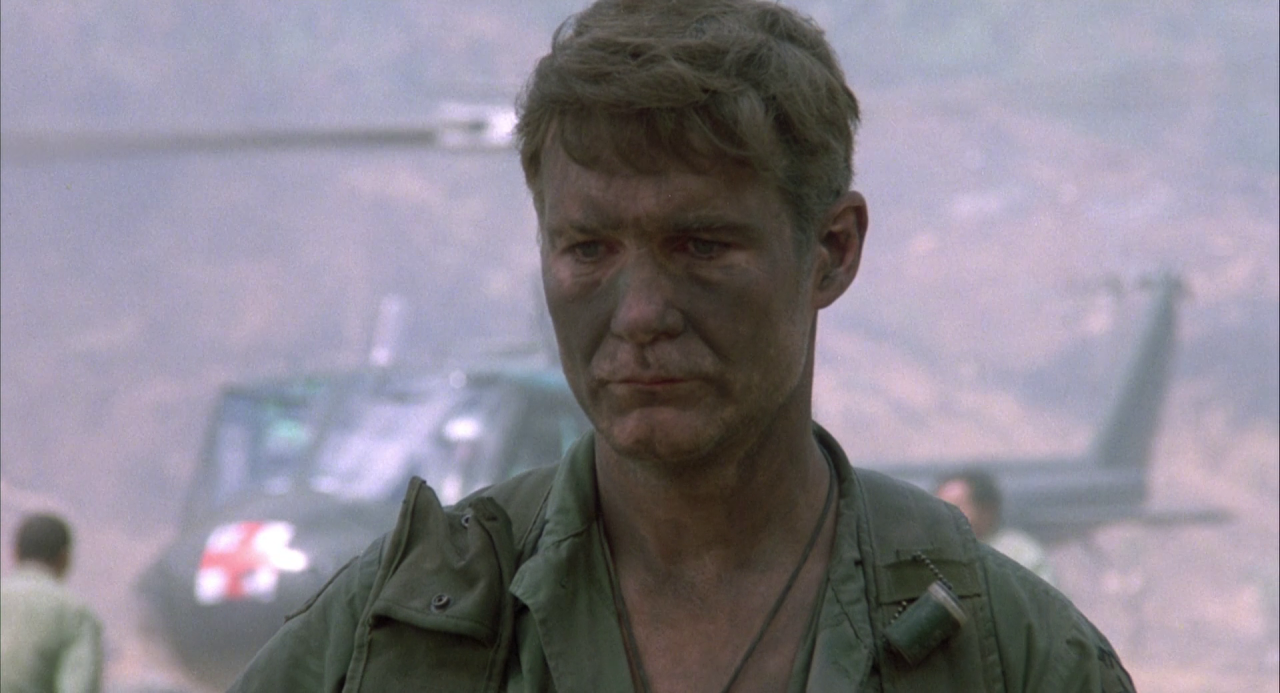
While Platoon drew heavily on writer-director Oliver Stone’s own experiences in Vietnam, the filmmaker also hired other veterans of the conflict as technical consultants. One of these was Dale Dye, who – as well as offering technical advice – appears in the film as Captain Harris. This was Dye’s second acting role, and he’s since made many more movies including Mission: Impossible, Under Siege and Starship Troopers.
The film’s final battle is based on a real incident witnessed by Dale Dye
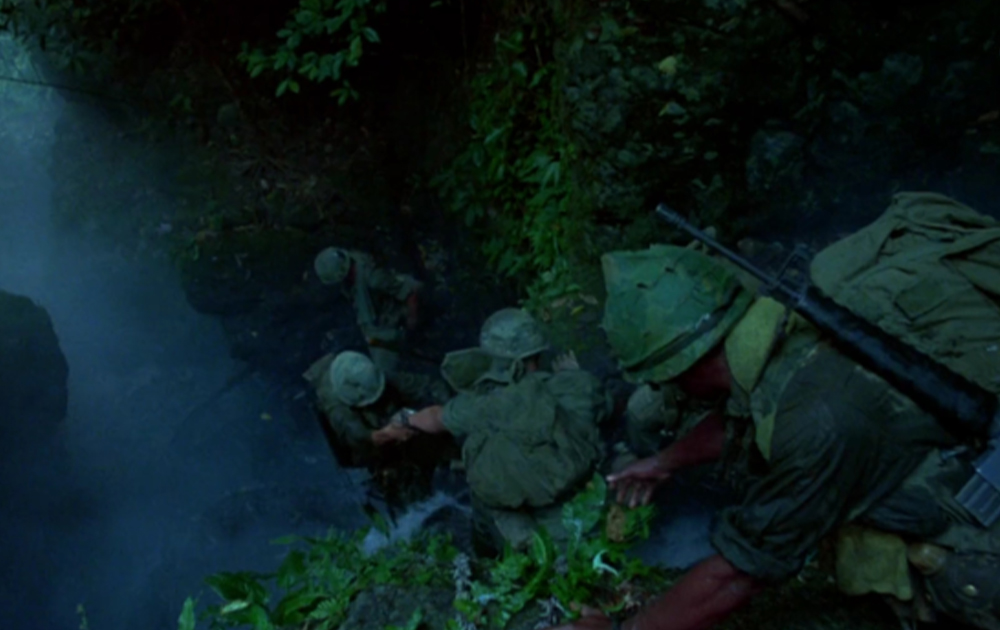
Dale Dye had served in the Vietnam War as a combat correspondent with the 2nd Battalion, 3rd Marines, and some key scenes in Platoon drew directly on real incidents that he witnessed during the conflict. This includes the film’s final battle scene, which is a recreation of a real battle at which Dye was present.
Charlie Sheen’s brother Emilio Estevez almost played Chris Taylor
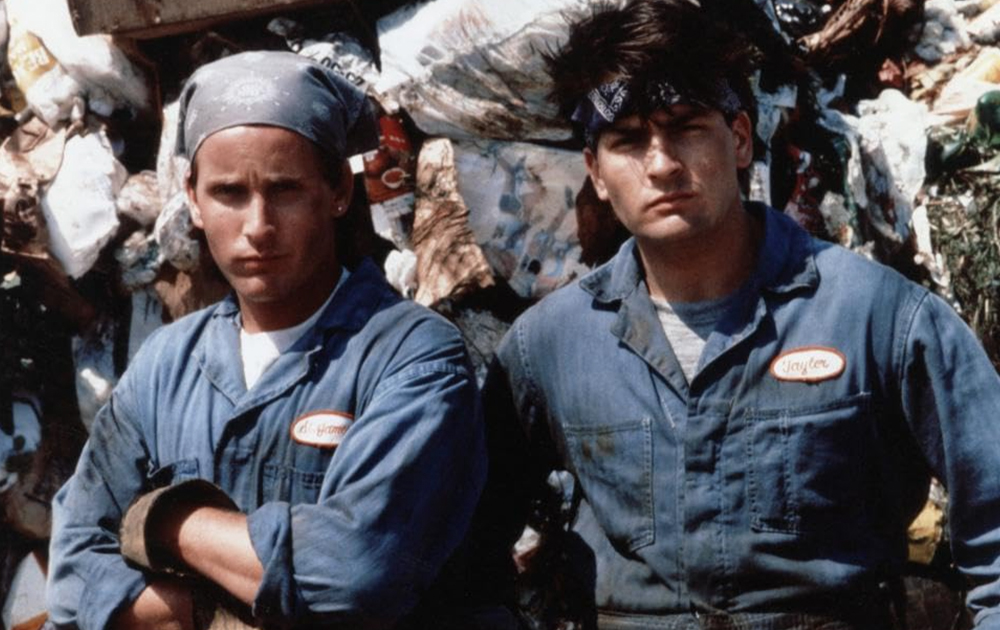
Platoon almost got made earlier in the 80s. At this point, Charlie Sheen auditioned to play Chris but was deemed too young, so his older brother Emilio Estevez was provisionally cast instead. However, financing problems saw the production go on hold, and once this situation was rectified Estevez had moved on to other projects. By then, Sheen was the right age, and landed the role.
Johnny Depp had never left America before making the movie
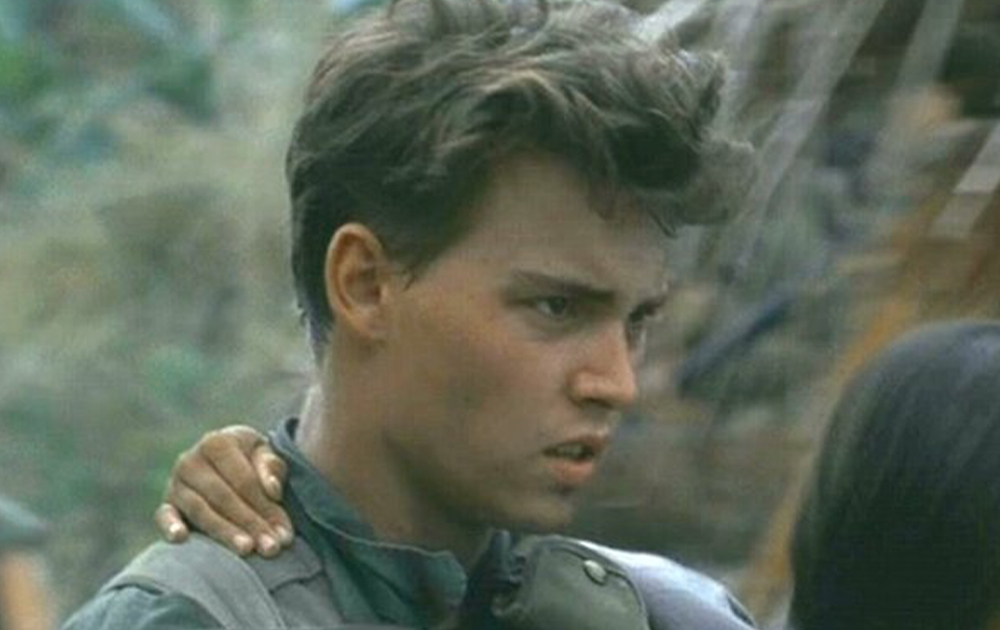
Prior to appearing in Platoon as Gator Lerner, Johnny Depp had made only two movies – A Nightmare on Elm Street, and Private Resort – both of which had been shot close to home in the US. When he flew to the Philippines to shoot Platoon, this was the very first time that Depp had left American soil.
Oliver Stone wrote the script as a response to John Wayne’s The Green Berets
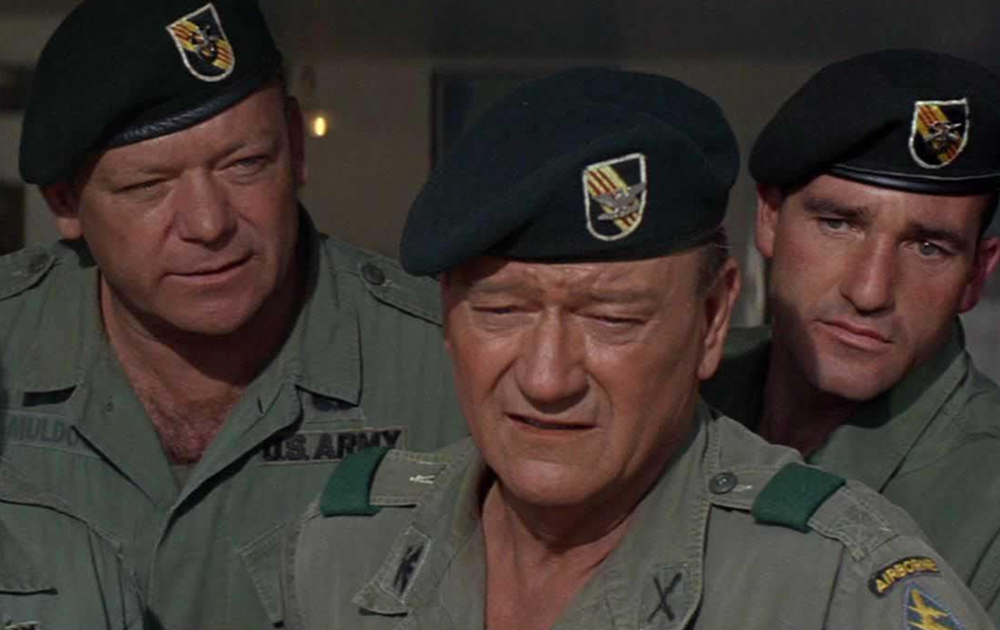
Not long after Oliver Stone completed his tour of duty in Vietnam in 1968, John Wayne movie The Green Berets was released. Wayne’s film was widely condemned as pro-war propaganda and an extremely inaccurate depiction of the conflict in Vietnam, and Stone – previously a Wayne fan – was inspired to write Platoon in order to paint a more accurate picture of what was going on.
Stone originally wanted a Native American actor to play Sgt Elias
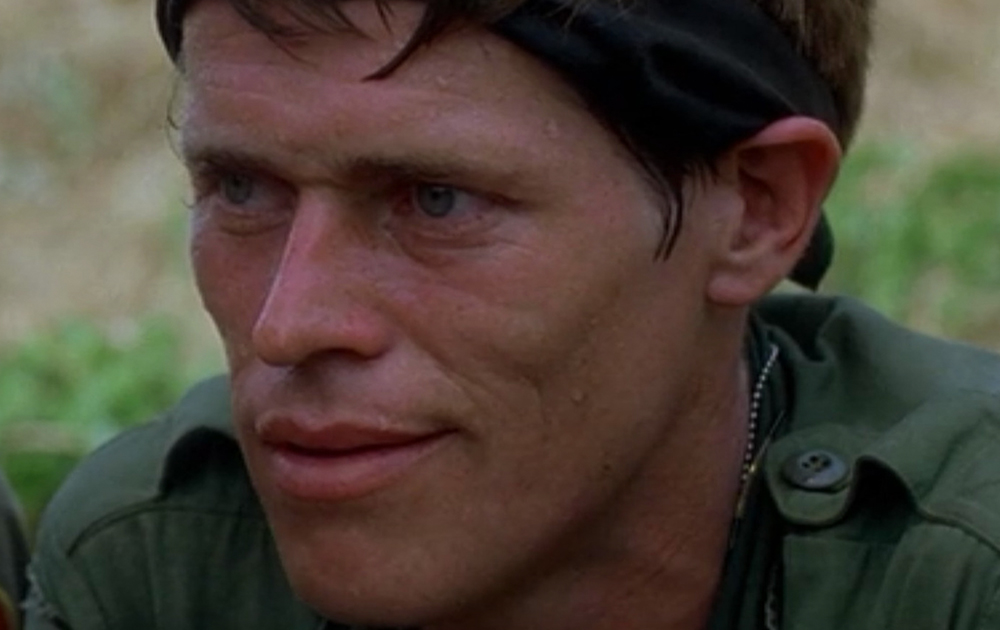
Not every aspect of Platoon lined up completely with Oliver Stone’s original vision. Initially, he had intended for the key role of Sergeant Elias to be taken by a Native American actor, but unfortunately the writer-director struggled to find anyone suitable. Eventually Stone decided instead to cast Willem Dafoe, who is of European descent, and it proved a major breakthrough role for the actor.
During training, the actors got so hungry they cut a tree down to get coconuts
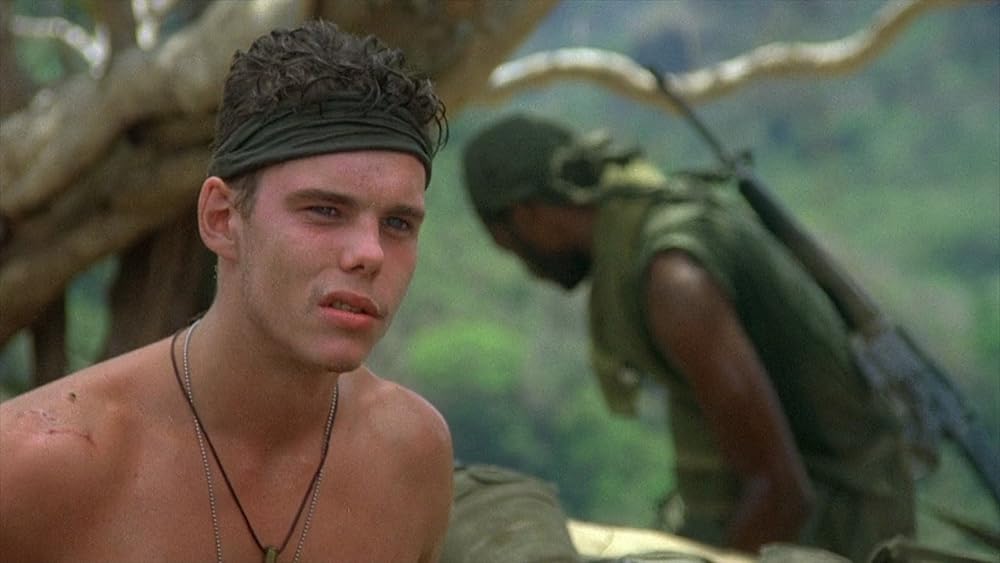
During the intense two weeks of military training the actors underwent prior to filming, the cast were genuinely exhausted and famished to the point that they decided to try and get food in the wild. Kevin Dillon recalls, “we got in trouble because we chopped down a coconut tree… a bunch of guys chopped the thing down just to get to the coconuts.”
The film was accused of racism for its emphasis on white soldiers
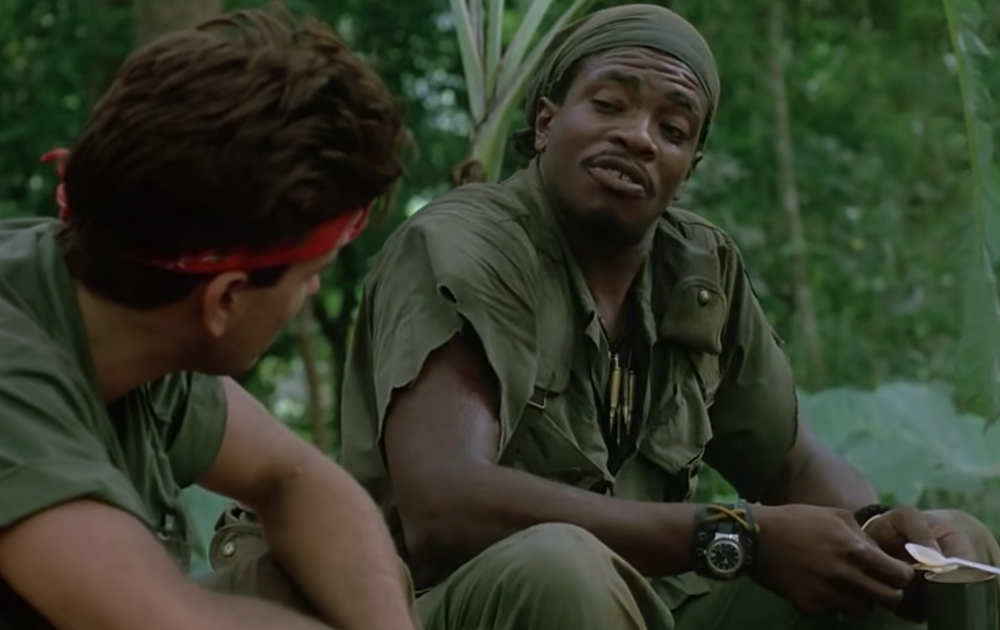
Despite Oliver Stone’s commitment to portraying the Vietnam War as accurately as possible, he still faced harsh criticism for under-representing the ethnic diversity of Americans who fought in the conflict, with black and Latino soldiers relegated to the sidelines. African-American journalist and Vietnam veteran Wallace Terry described Platoon as a “slap in the face” and “an abysmal racist disaster.”
Oliver Stone feared that Charlie Sheen movie The Wraith would derail Platoon
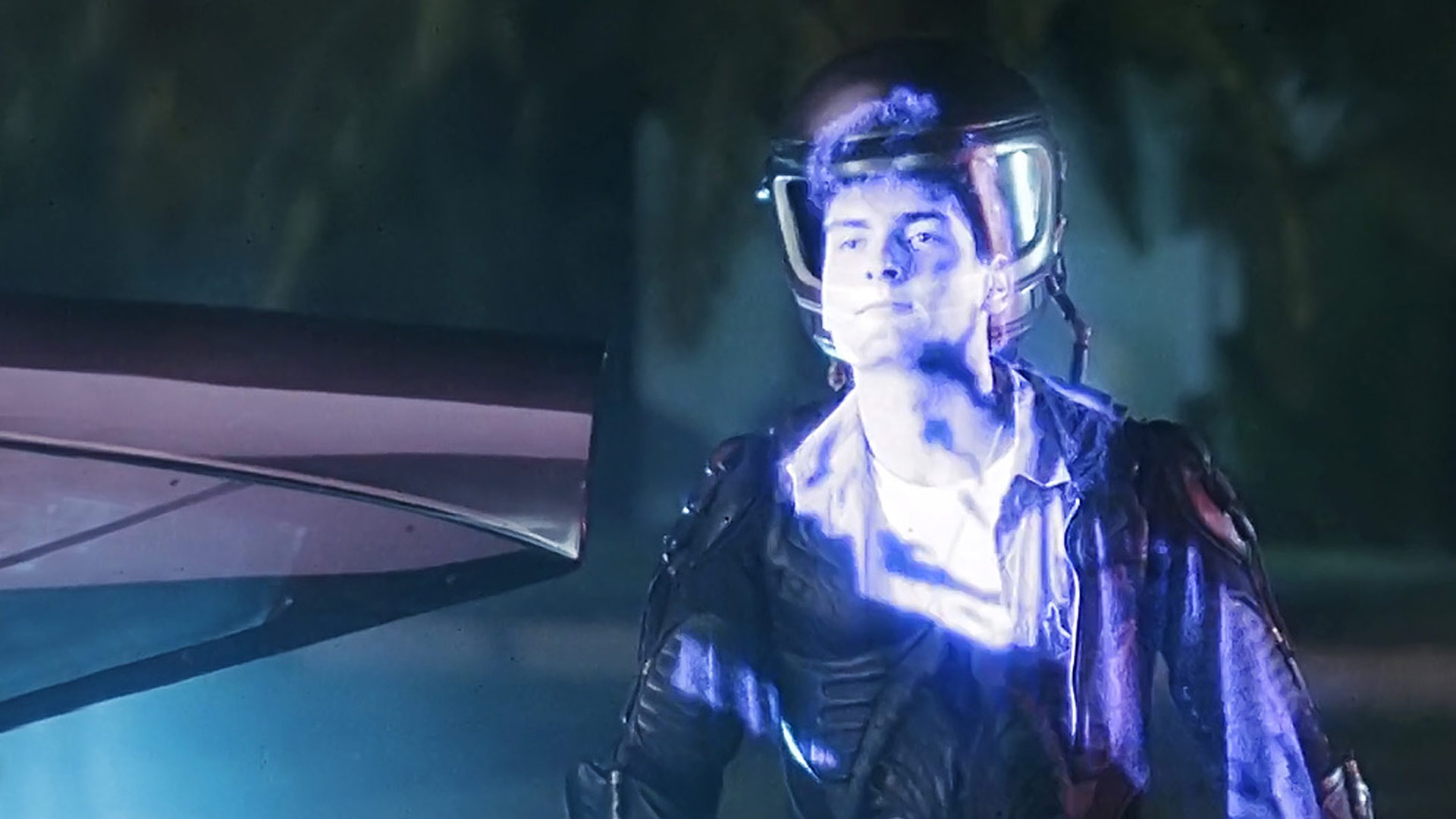
Four weeks before Platoon opened, another Charlie Sheen movie hit screens: The Wraith, a bizarre revenge fantasy which casts Sheen as a murdered teen reborn as a mystical race car. It was a widely ridiculed flop, and Sheen recalls Stone calling him, furious: “He says, ‘You cannot do films like this. What is this movie about? What are you, a car?…Perhaps, you’ve ruined Platoon?’”
The Pentagon refused to support the film
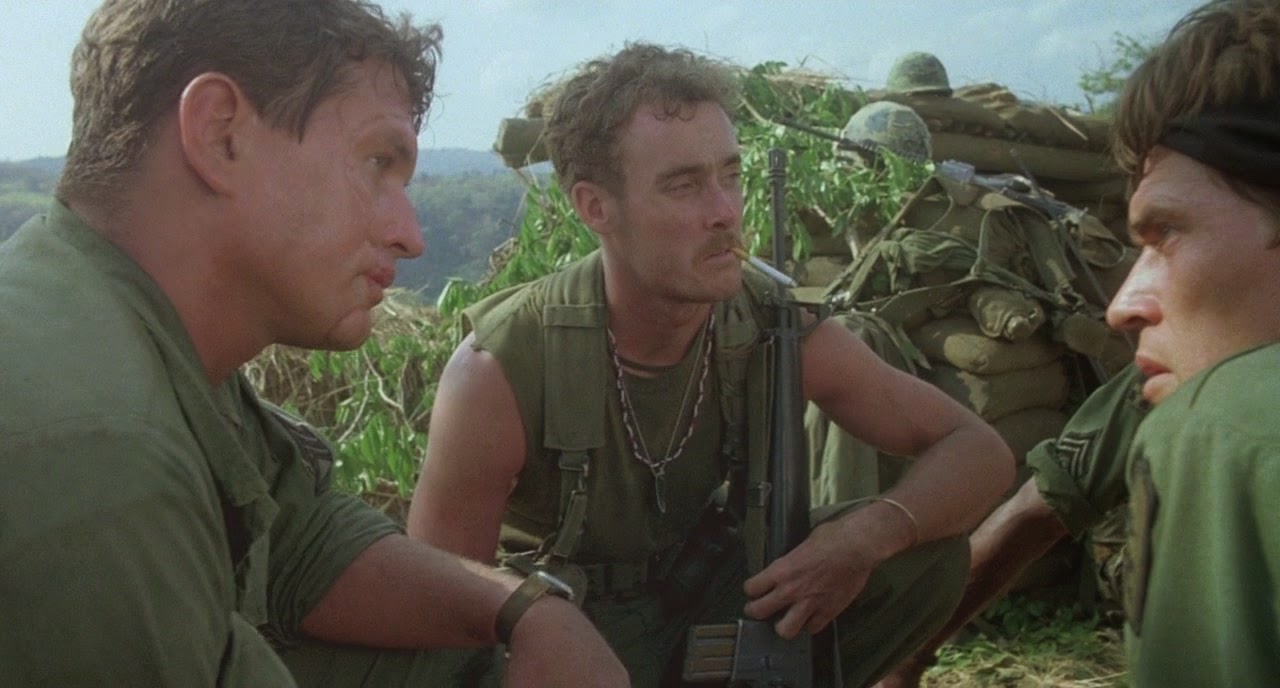
Many military-themed films are made with the support of the US Department of Defence, based in the Pentagon. This was not the case on Platoon, however. After reviewing Stone’s script, an official Pentagon statement declared they “cannot support it as written… the script presents an unfair and inaccurate view of the Army.” By contrast, the Pentagon fully supported another 1986 military-based hit, Top Gun.
Willem Dafoe improvised throwing his arms up in his death scene

Even though it became the film’s defining image (and one which echoed a legendary real-life photo from the Vietnam War), the moment in Platoon in which Willem Dafoe’s Elias throws his hands to the air as he is shot to death was not planned. Dafoe ad-libbed the move, and insists it was “purely practical: the helicopter’s up there, and you want to reach for it.”
Oliver Stone initially thought Dafoe’s death pose might be too over the top
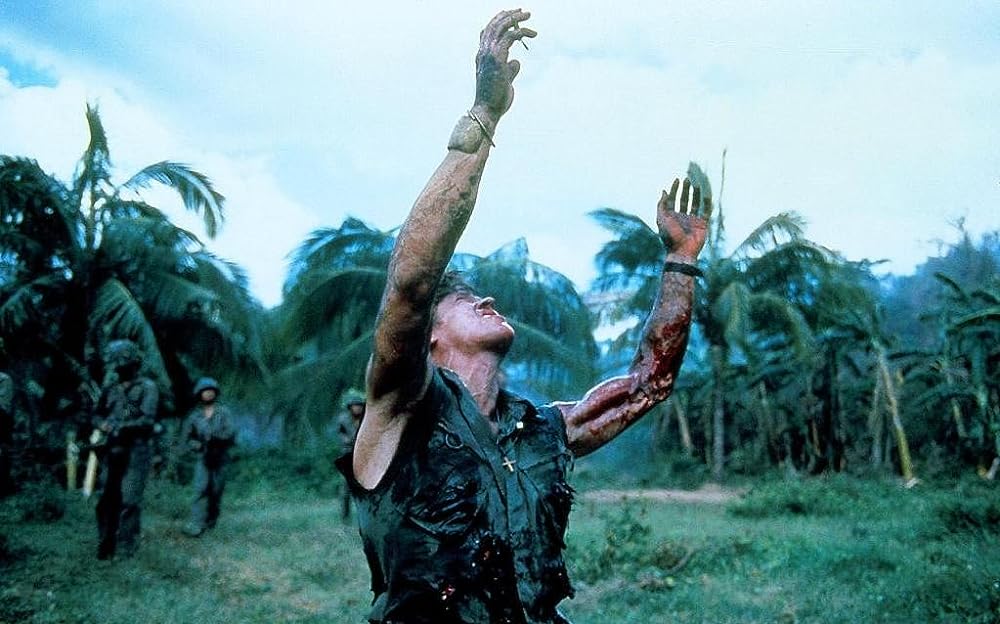
Considering what an iconic image it has become, it’s curious to note that writer-director Oliver Stone had his doubts about the way Willem Dafoe played Elias’ death scene at first. The writer-director felt the arms to the sky gesture was “probably a little melodramatic to tell you the truth. I mean, how many times can he get shot and do that? But it’s definitely memorable.”
James Woods declined the chance to appear in the film
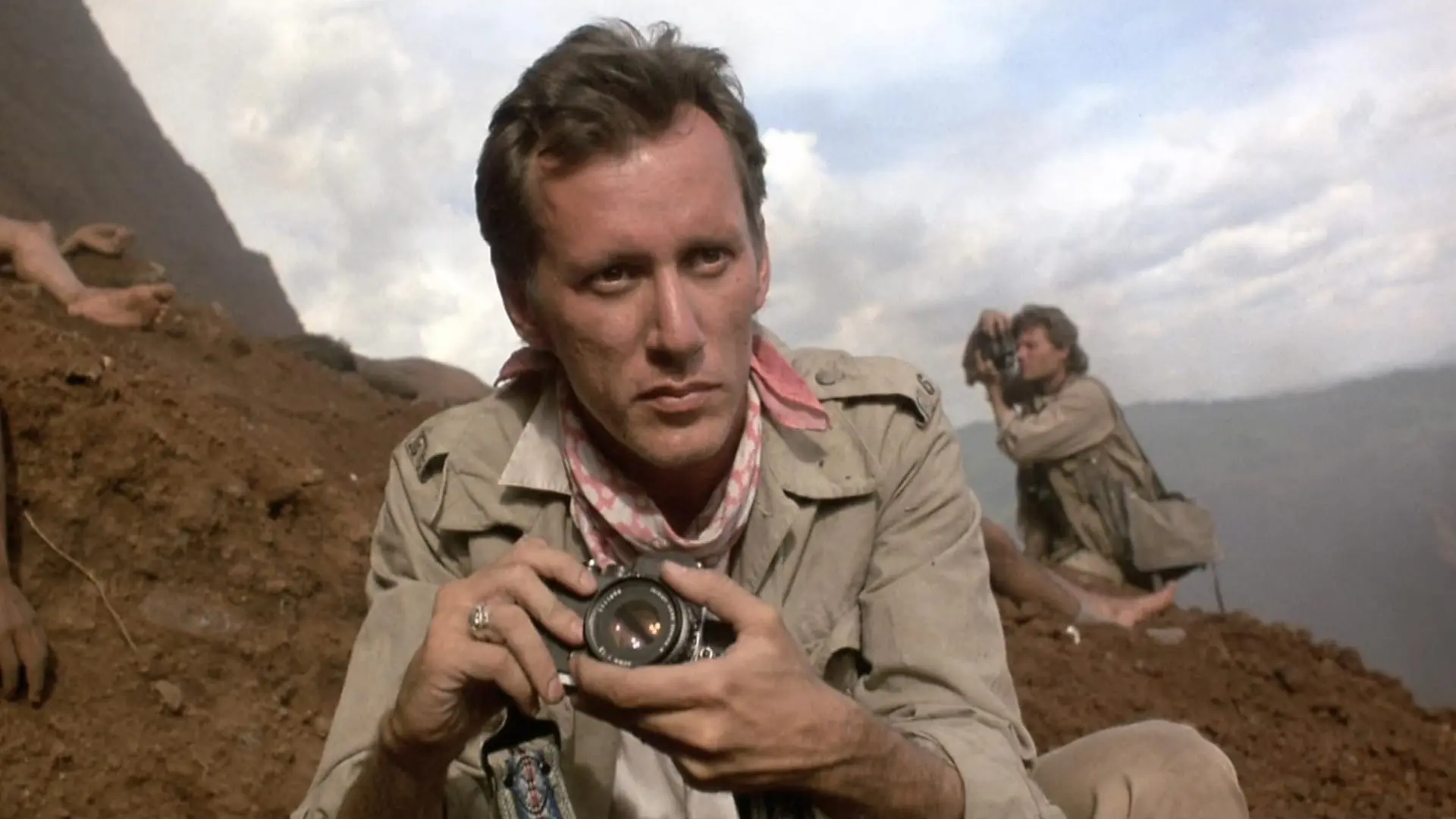
Remarkably, Platoon was not the only Oliver Stone movie to hit screens in 1986. Earlier that same year, Stone’s previous film Salvador opened, which would earn leading man James Woods a Best Actor Oscar nomination. Stone initially wanted Woods to appear in Platoon, but Woods declined, later claiming, “I couldn’t take the mud.” Woods and Stone would later reunite on the 1995 film Nixon.
Val Kilmer blew his audition by playing Elias as a Shaman

Before Willem Dafoe was cast, Val Kilmer auditioned for Sgt. Elias. However, the actor (who claims to have Cherokee ancestry, although some have questioned this) portrayed the character – who was written as Native American – in a strange, Shaman-like manner. Oliver Stone was confused by this and ruled Kilmer out. Stone would later cast the actor as Jim Morrison in his 1991 rock biopic The Doors.
Tom Berenger was left emotionally scarred by the scene in which Barnes threatens a child
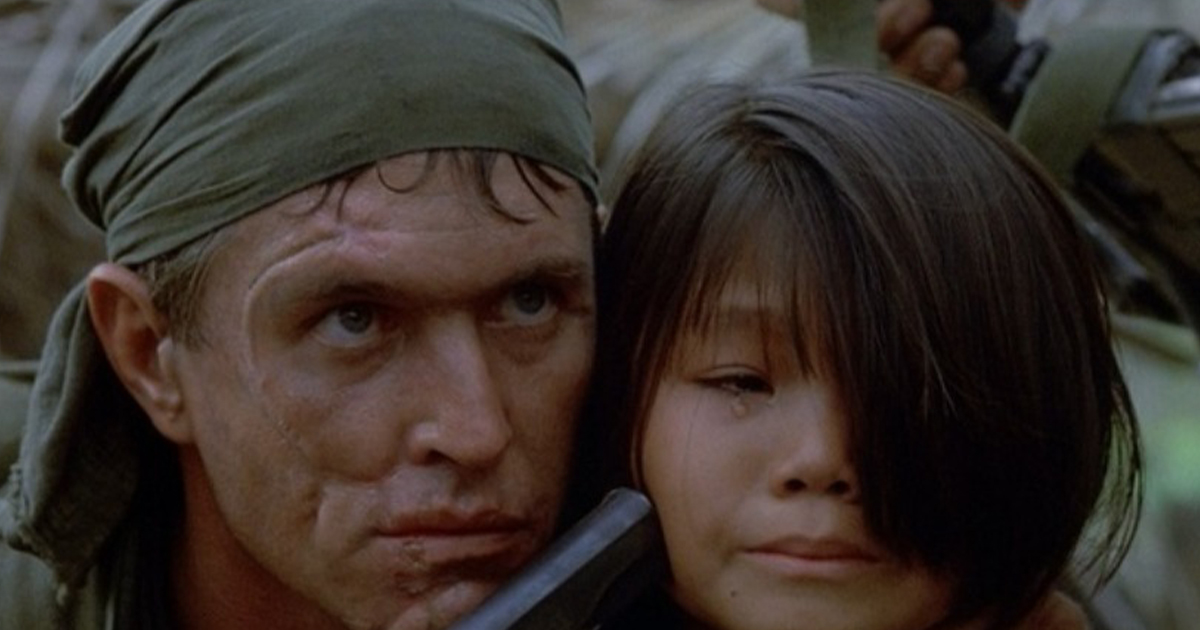
As the unhinged Sgt Barnes, Tom Berenger gives perhaps the most chilling performance in Platoon, and the actor admits the role took its toll on him psychologically. One key scene proved particularly grueling: when Barnes threatens the life of a 12-year-old girl, which Berenger admits struggling with as the child wasn’t an actor, and Stone demanded Berenger make her cry for real.
Denzel Washington wanted to play Elias
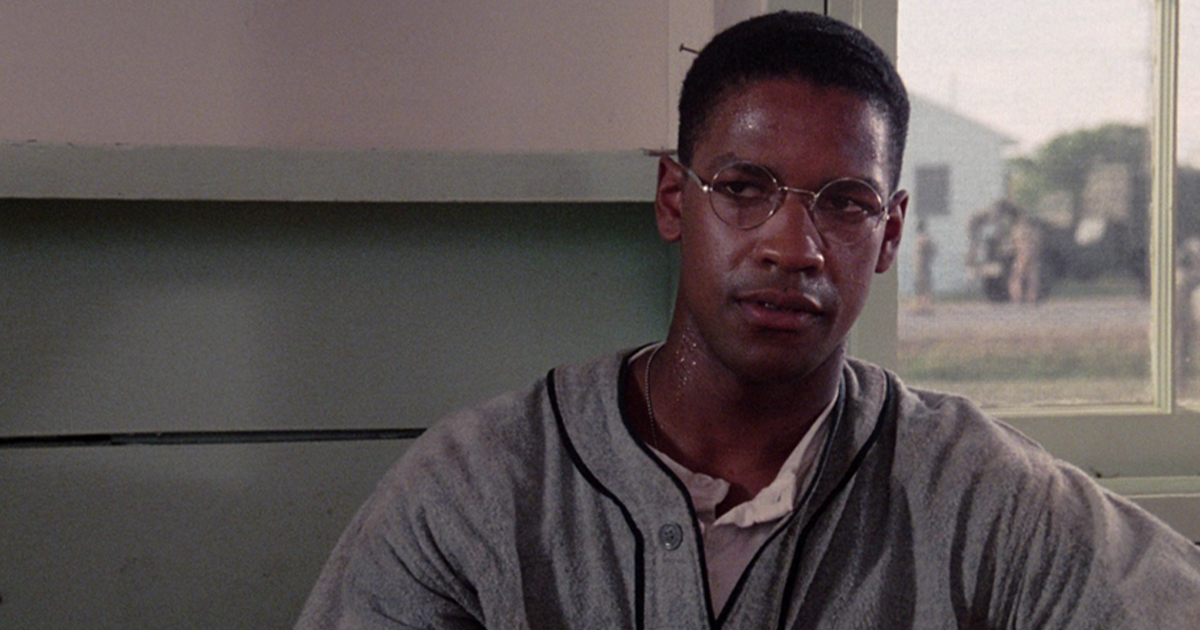
Back in 1986, Denzel Washington was still a comparatively lesser-known actor with only a few film roles to his name, but he was very keen to appear in Platoon in the role of Sgt Elias. This didn’t come to pass, but a few years later Washington earned the Best Supporting Actor Oscar for Glory, and has enjoyed huge success ever since.
Johnny Depp made a number of nods to then-girlfriend Sherilyn Fenn
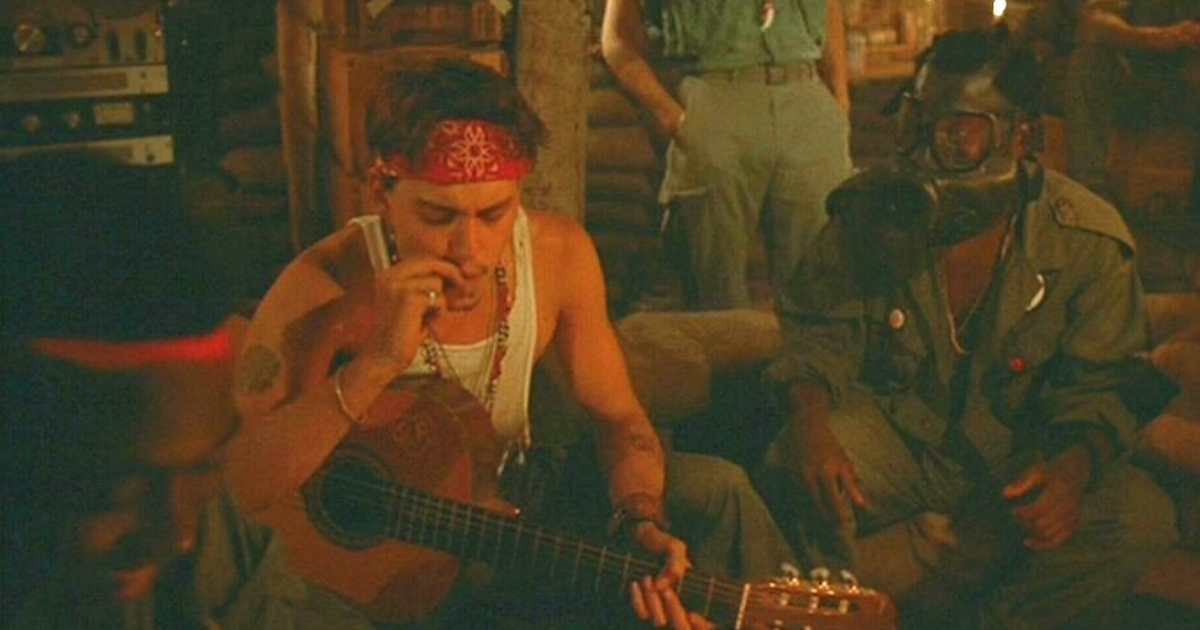
Whilst shooting Platoon, Johnny Depp was dating actress Sherilyn Fenn. He paid tribute to his then-girlfriend by writing her name on his helmet, and carving the initials ‘S.F.’ in the center of a heart on the acoustic guitar her plays in the film. Years later, Depp famously celebrated his later girlfriend, Winona Ryder, with a tattoo reading ‘Winona Forever’ (notoriously later changed to ‘Wino Forever).
Elias is said to “think he’s Jesus Christ” – then Willem Dafoe played Christ two years later
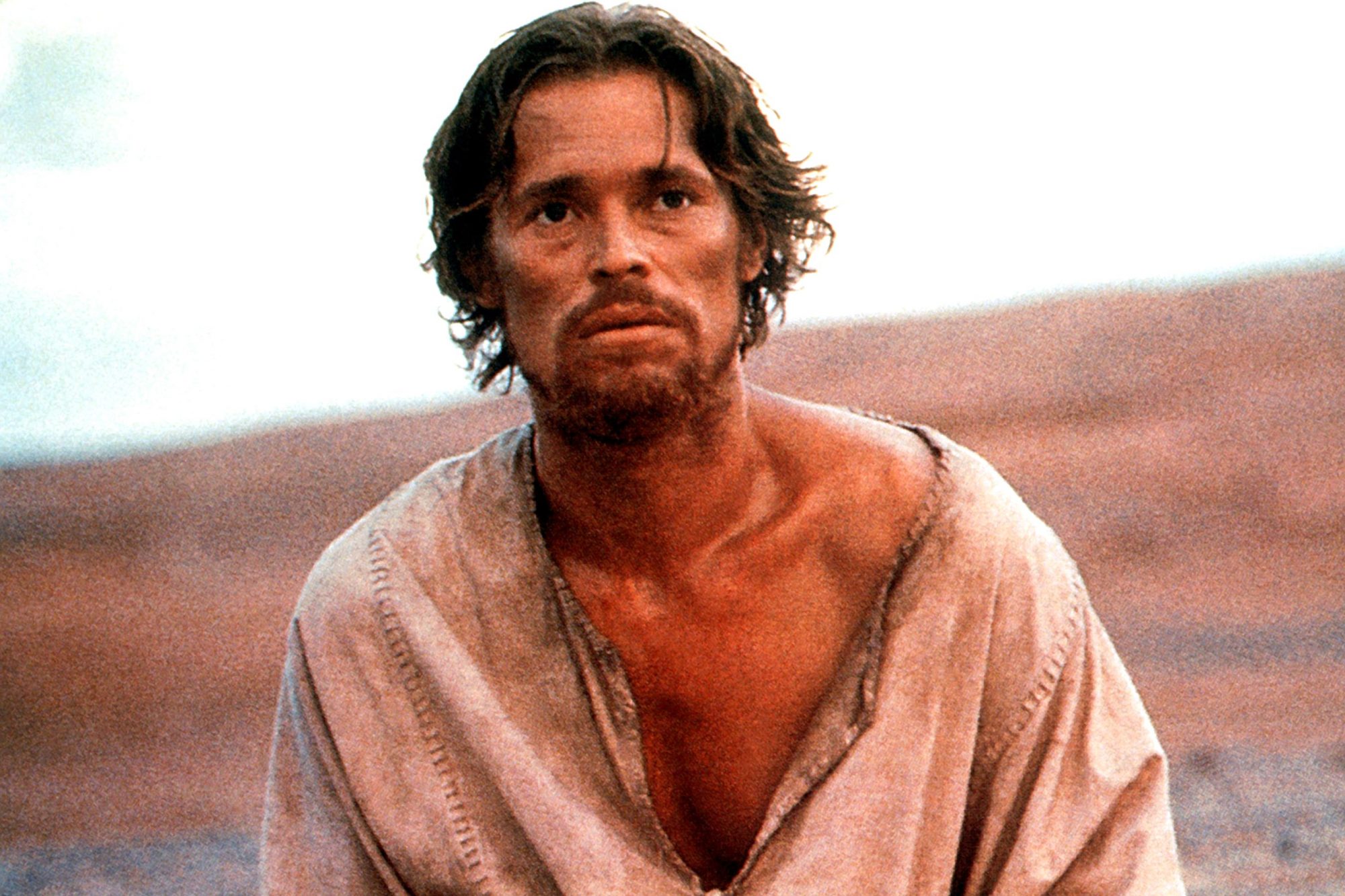
At one point, John C McGinley’s O’Neill says of Willem Dafoe’s Elias, “guy’s in three years and he thinks he’s Jesus f***in’ Christ or something.” This proved to be a curiously prophetic line, as two years later Dafoe would indeed portray Jesus in Martin Scorsese’s 1988 drama The Last Temptation of Christ. The huge controversy this film attracted almost derailed Dafoe’s career.
Oliver Stone bullied Charlie Sheen into performing a dangerous scene shirtless
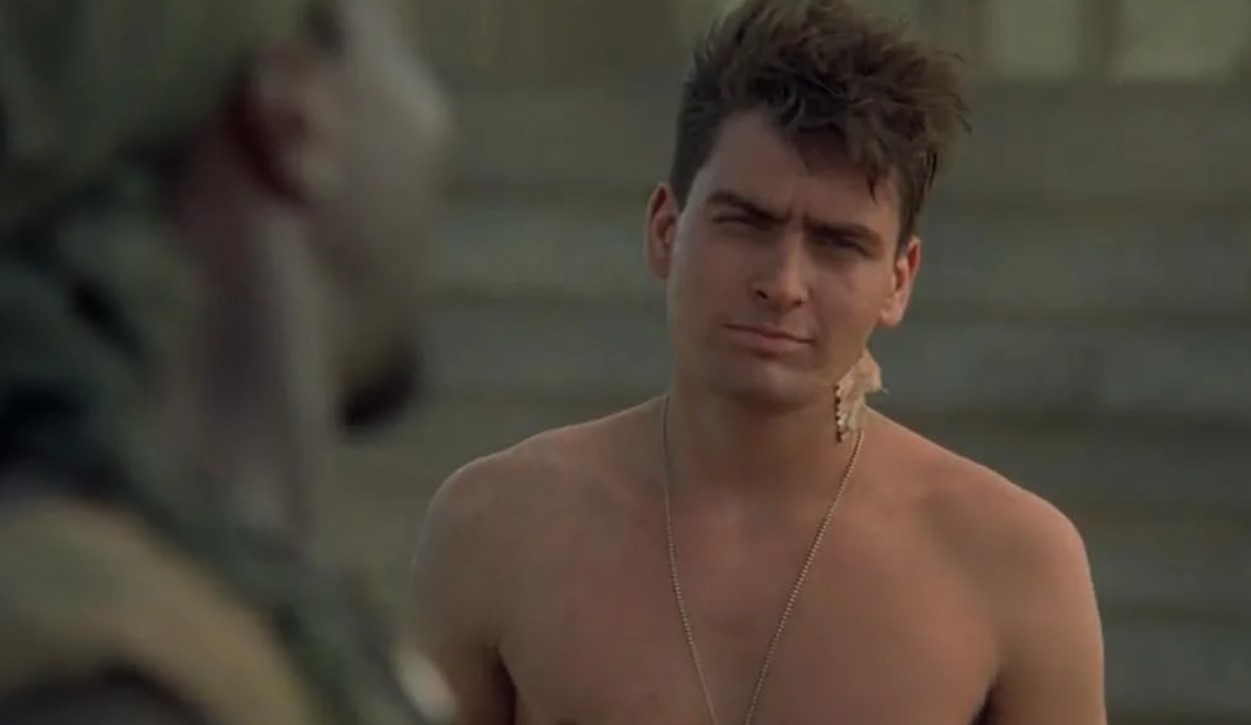
Charlie Sheen complained about being asked to be bare-chested in a scene involving a helicopter, as the rotating blades above were whipping up rocks on the ground. Stone mocked him: “Are you a little p***y from Malibu? Played too much volleyball all your life?” Sheen then “got so p***ed off I ripped the shirt off, did the scene and had scars on my back for weeks.”
John C McGinley’s personal life impacted his emotional outbursts on camera
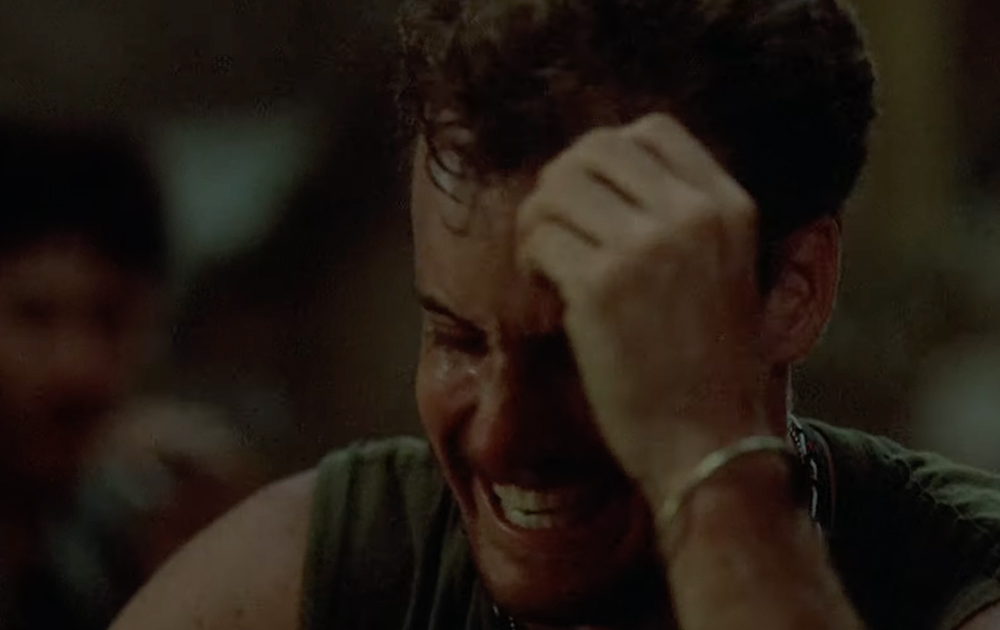
As Sgt O’Neill, actor John C. McGinley has his share of crazed emotional outbursts in the movie, and McGinley believes this may have been informed not just by the stressful conditions on set, but on his own personal woes at the time. The actor’s mother had not long since undergone brain surgery, and anxieties over her condition only made McGinley more volatile on set.
Tom Berenger was so intense partly due to his recent divorce
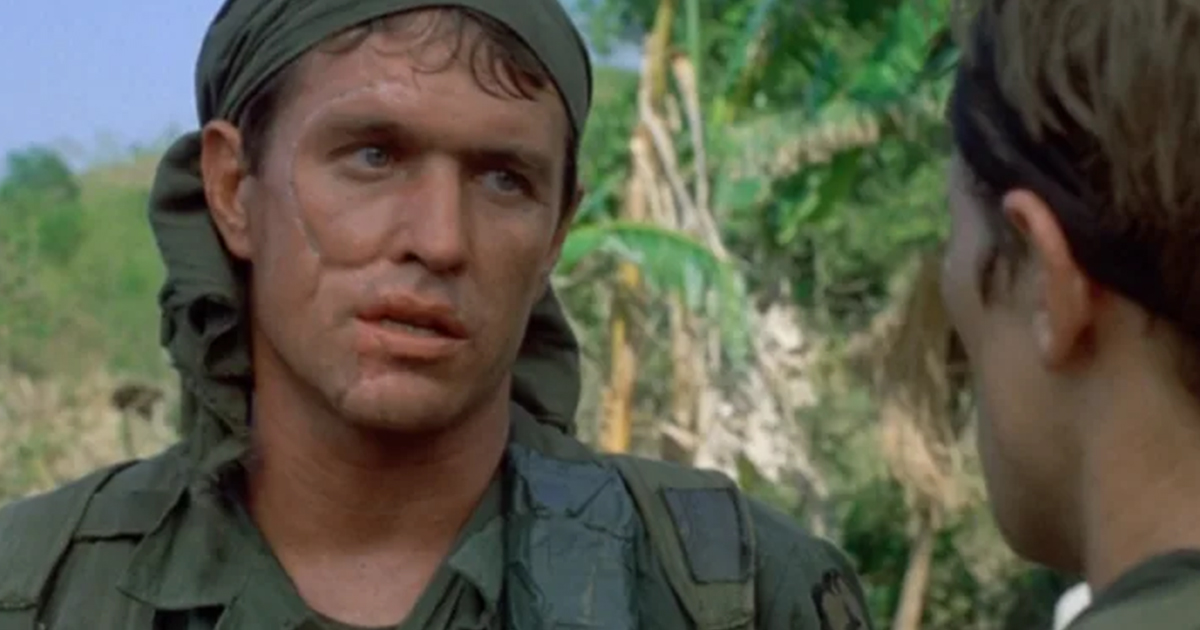
When Platoon went into production, Tom Berenger had not long since finalized his divorce from first wife Barbara Wilson; the couple had been married for eight years and had two children together. Charlie Sheen has since said that he believes Berenger’s emotive performance in Platoon was in part informed by the actor’s state of mind in the wake of this.
Charlie Sheen’s casting hinged on Willem Dafoe’s approval
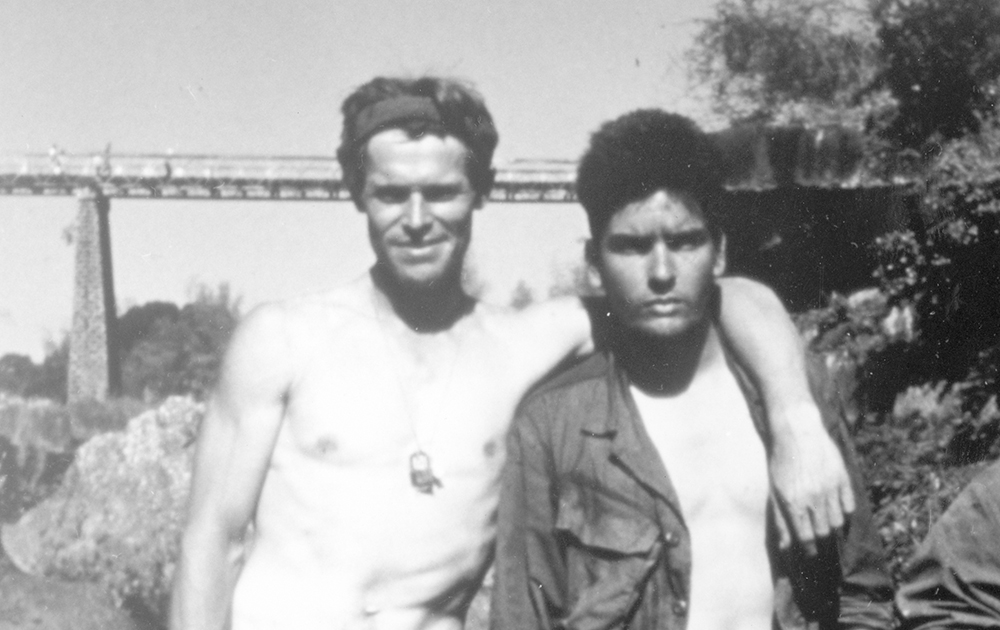
Until quite late in the day, Oliver Stone still had doubts about whether or not Charlie Sheen was the right actor to play Chris. However, the director eventually decided to give Sheen a shot after Willem Dafoe voiced support for the young actor. Sheen recalls being told by Stone, “Willem digs ya,” which finally secured him the role.
Kevin Dillon struggled shooting the scene in which Bunny beats a villager to death
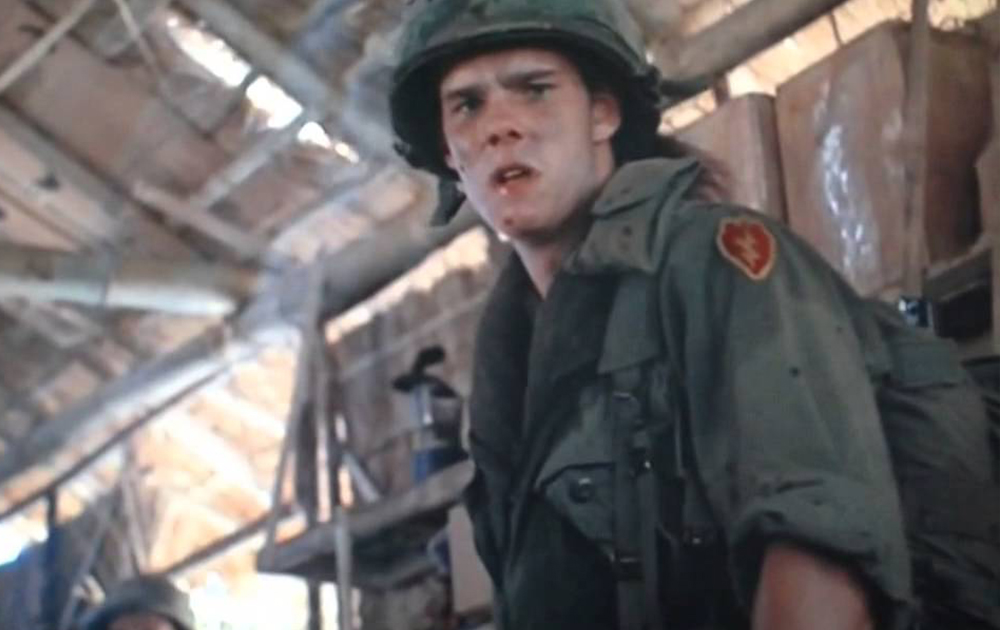
Bunny actor Kevin Dillon had particular difficulty shooting the scene in which his character brutally beats a villager to death. Cast in the role of the villager was a local Filipino, who was deaf, partially blind and only had one leg. Dillon wasn’t even sure the man realised they were making a movie, making the shooting of the scene an unnerving experience for the young actor.
Oliver Stone makes a cameo appearance in the film
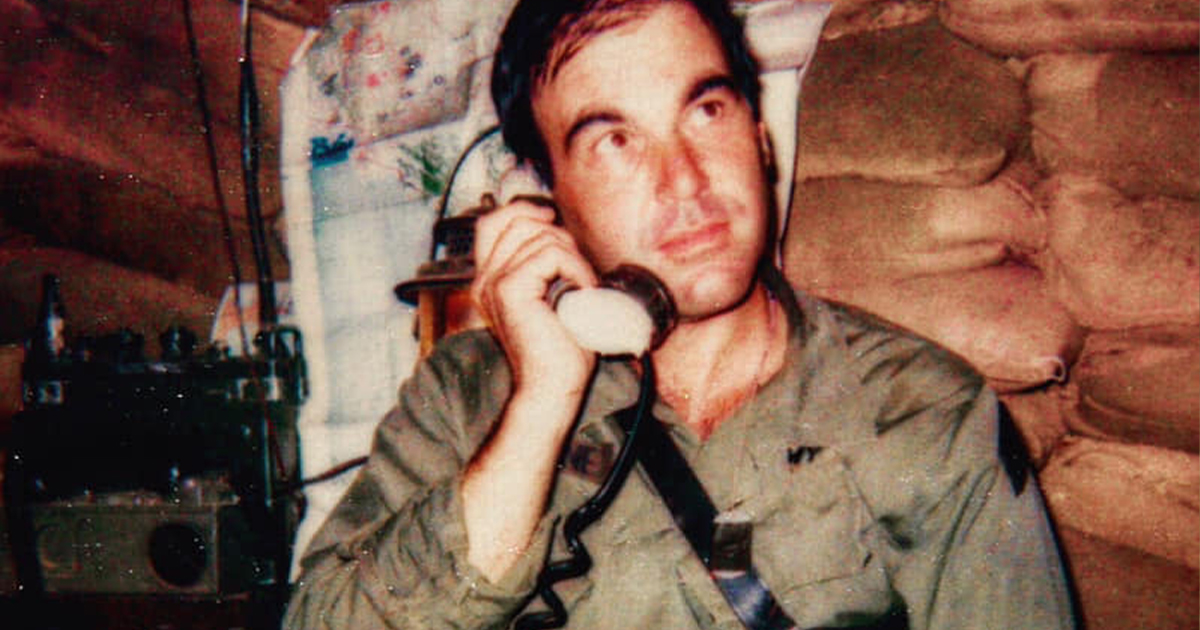
A lot of filmmakers like to give themselves small roles in their movies, and Oliver Stone is no exception. The writer-director makes a brief, uncredited appearance as the Alpha Company Major in the bunker scene. Other Oliver Stone movies in which the director appears include Wall Street, Born on the Fourth of July, The Doors, Any Given Sunday and Alexander.
The film was banned in Vietnam
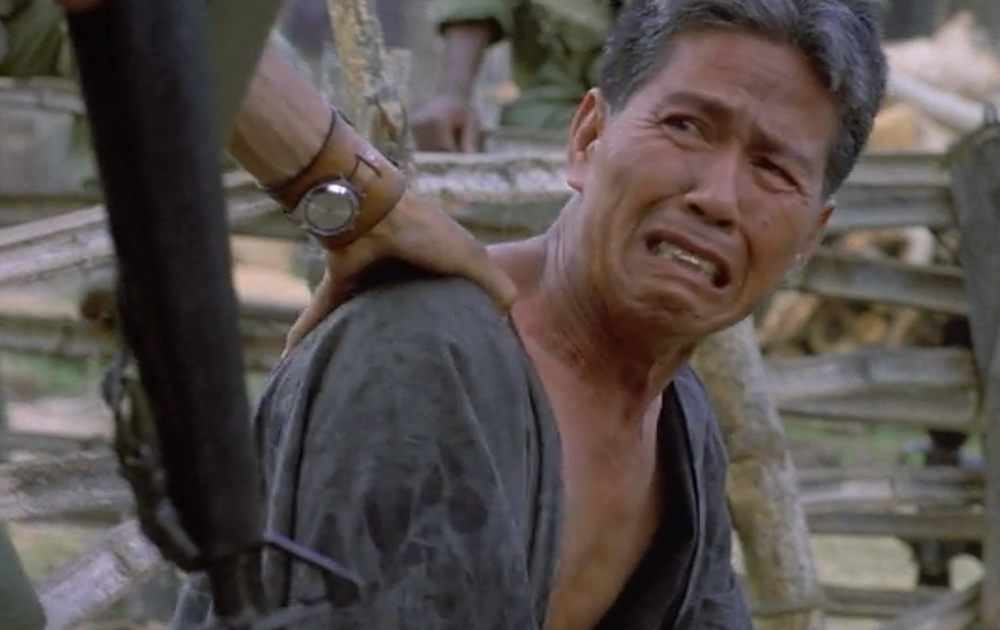
It’s hardly surprising that the many films made about the Vietnam War tend to prove controversial in the country itself. The Vietnamese government banned Platoon from being shown there, feeling it painted their military in an unflattering light. Even so, illicit viewings of Platoon are known to have taken place, the Vietnamese media reporting that thousands of people saw the film on video.
It’s implied that Rhah is a drug addict
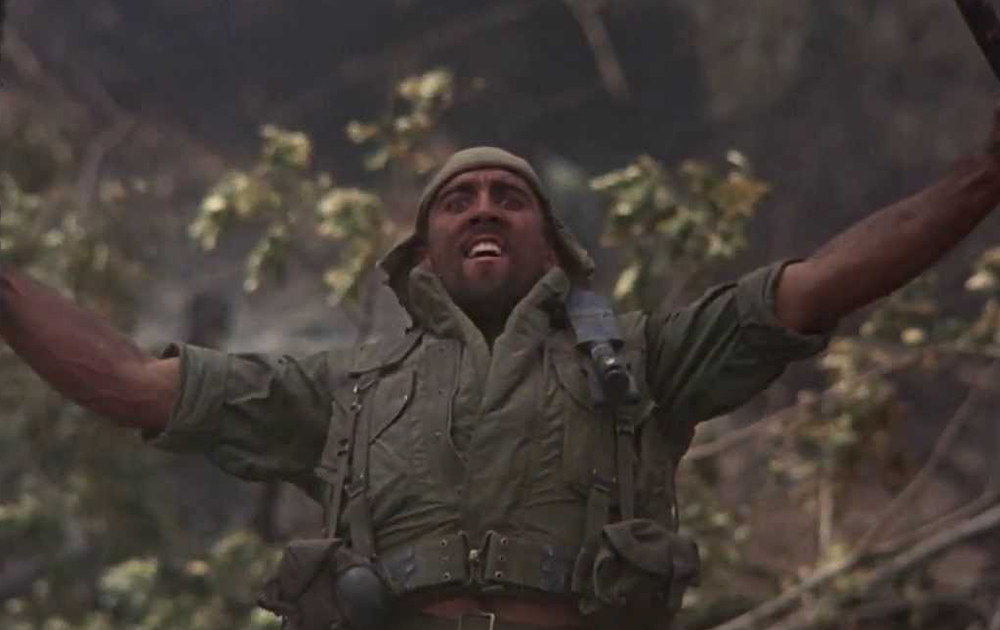
Francesco Quinn co-stars in Platoon as Rhah, who embodies the archetype of the American soldier who was stoned for most of his time in Vietnam. One moment hints Rhah may in fact be a hard drug user, when we see him anxiously steal something from the pocket of a dead Vietnamese soldier. It’s implied Rhah is stealing heroin, which VC soldiers carried for pain relief.
Oliver Stone told Forest Whitaker off for losing weight
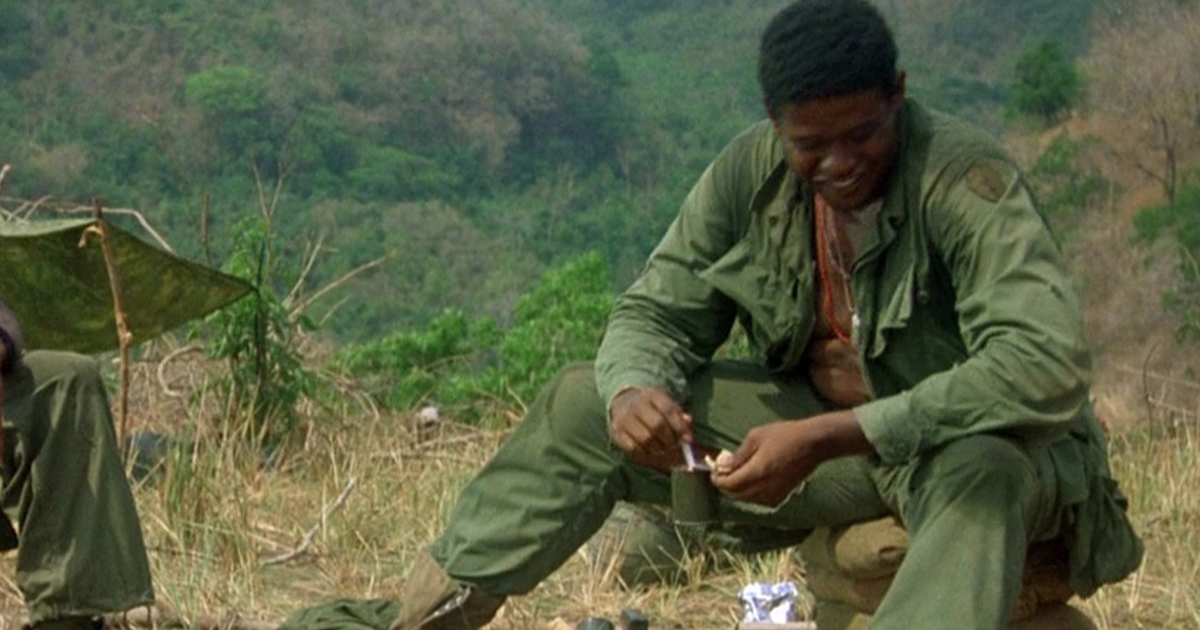
Forest Whitaker has always been a big guy, and he came into Platoon intending to stay as physically large as possible. However, the intense military training the cast underwent (which involved them going long periods without eating) resulted in Whitaker inadvertently slimming down. Oliver Stone was not happy about this, complaining to the actor, “what are you doing? You’re supposed to be ‘Big Harold.'”
Charlie Sheen kissed the ground when he got back to the US after filming

Oliver Stone wanted Platoon was be as accurate a simulation as possible of life in the Vietnam war, and his methods proved so effective that the cast felt almost as if they’d literally been to war themselves. Charlie Sheen says that when he left the Philippines and touched down in America, he was so happy to be home that he bent down and kissed the ground.
Oliver Stone would hang around theaters to listen to people talk about the film
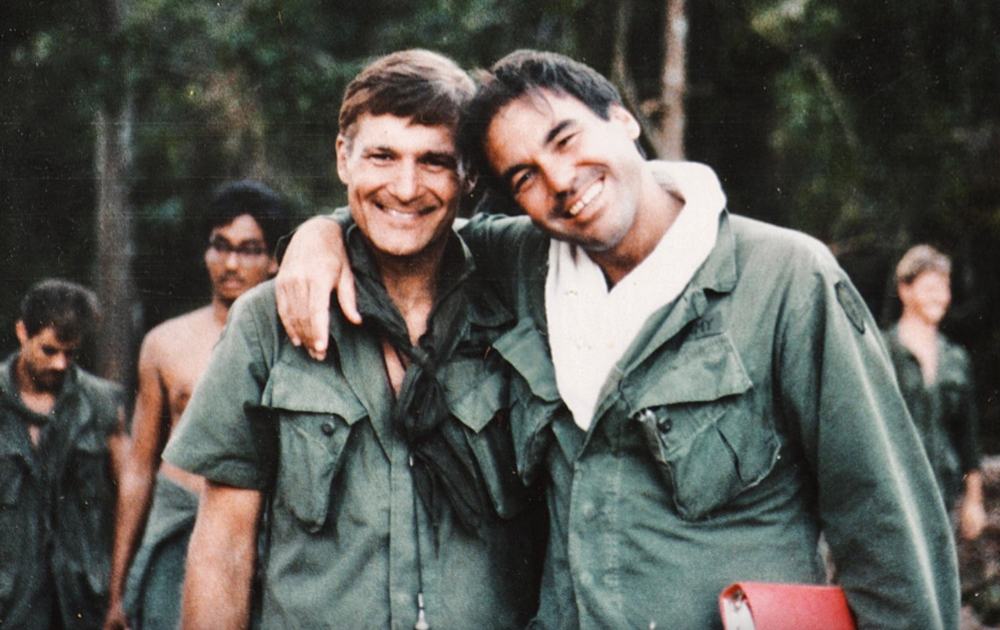
After the stress of making the film and the traumatic experiences that informed it, Oliver Stone was able to really enjoy the public reaction to Platoon. According to Elizabeth Cox, Stone’s wife of the time, the writer-director would head out to places where Platoon was showing and “stand outside the theater, [to] listen to remarks… He’s amazed that people like it. He’s cute.”